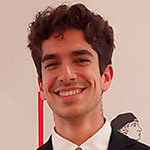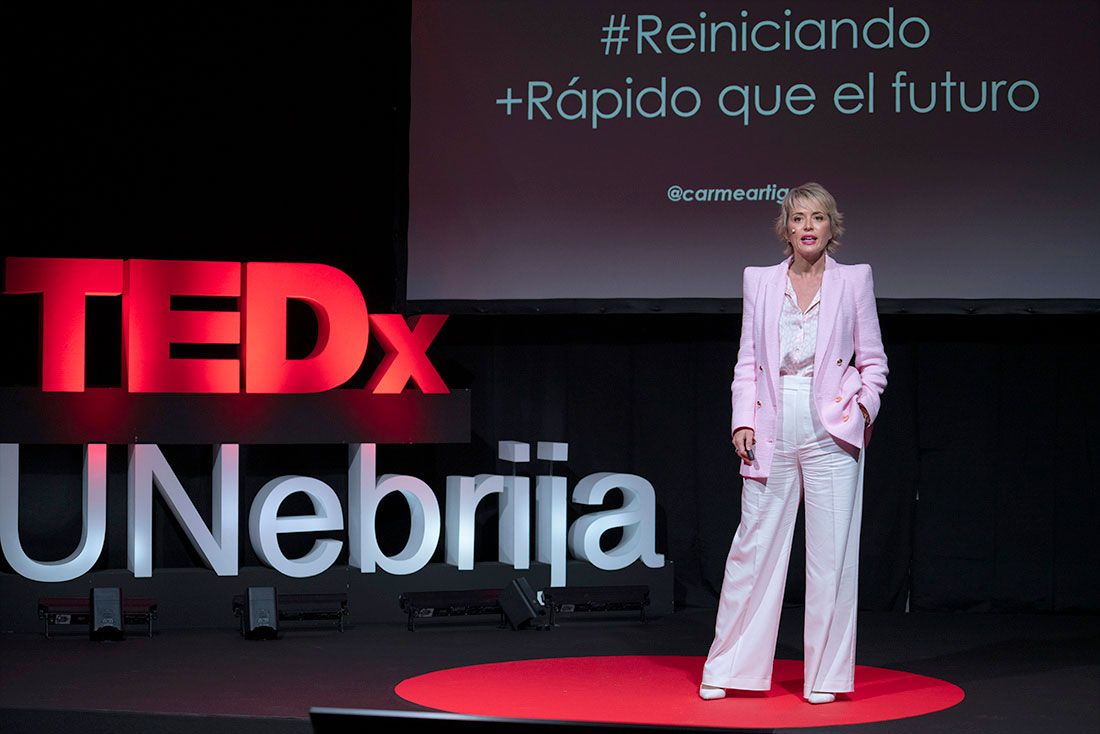Bachelor's Degree in Strategic Communication, Protocol and Event Organization
Planning, execution and control in the organization of any type of event
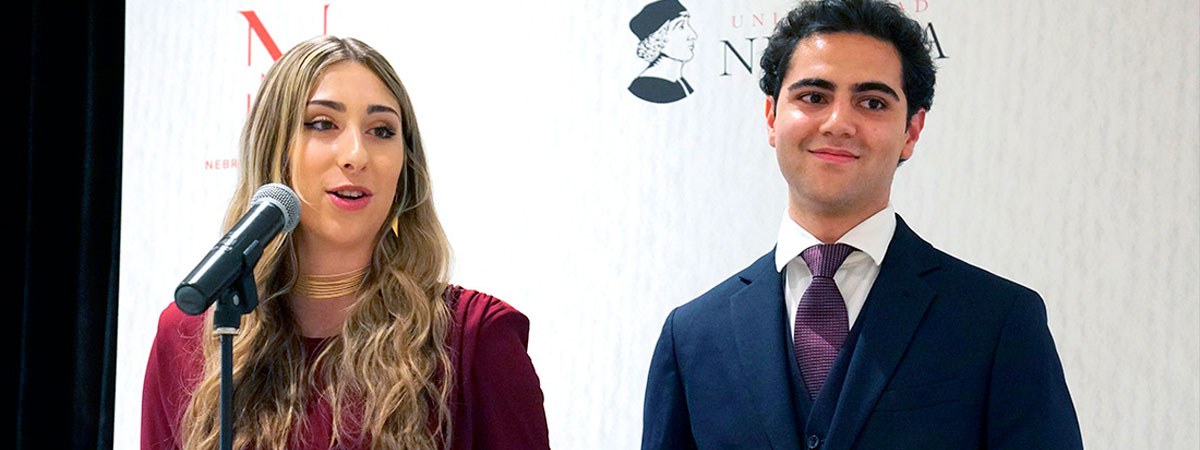
Theoretical knowledge analyzed in practical cases
Strategic communication is a vital component of any organization. Effective reputation management and audience engagement help companies and institutions establish their presence and stand out. Every action communicates—whether through business decisions, employee interactions, or social responsibility efforts. In today’s hyperconnected world, silence is not an option, and communication professionals are playing an increasingly crucial role.
Strategic communication encompasses several key areas, including internal communication management, protocol, institutional relations, corporate social responsibility, and event planning. Among these, event planning demands highly specialized professionals who not only master the techniques required for this strategic work but also understand the nuances of social etiquette needed to engage with diverse audiences.
Additionally, students enrolled in this Bachelor's program have the opportunity to pursue and earn the Specialization in Influencers, Branding, and Reputation. This specialization is supported by professionals from SAMY Alliance, Spain’s leading influencer marketing agency and a partner of Nebrija University. The program addresses the growing demand for professionals who can effectively manage brand presence and image in digital environments dominated by content creators and key opinion leaders (KOLs). It equips students with advanced skills to design, execute, and evaluate digital influence strategies, ensuring their professional expertise aligns with the current needs of the strategic communications industry.
Nebrija University, along with the Bachelor's Degree in Strategic Communication, Protocol, and Event Planning, is also a partner of Global Alliance—the world’s largest confederation of public relations professionals. This partnership grants students direct access to leading experts in strategic communications from across five continents.
Read +The Bachelor's program is led by a faculty of professors with extensive professional experience, most of whom remain active in their respective fields. This ensures that students gain a practical and realistic perspective on their future careers. Additionally, extracurricular activities provide valuable learning opportunities, including visits to leading agencies and companies, lectures by distinguished professionals, and hands-on workshops that allow students to apply their classroom knowledge through innovative methodologies and dynamic exercises.
The degree establishes strategic communication as a fundamental pillar upon which all corporate actions—such as event planning and proper protocol implementation—must be built. These essential tools require specialized training, and this program, with its updated and innovative curriculum, is designed to meet the demands of an increasingly digital world.
This approach significantly enhances graduates' employability by expanding their career prospects and opening doors to a wide range of professional opportunities, including roles in communications and public relations departments, communications and event agencies, international relations management, and protocol coordination, among others.
Read lessDouble Degrees, double opportunities Combine your Degree in Strategic Communication, Protocol and Event Organization and obtain a Nebrija NextGen Talent Microcredential
What is the Nebrija NextGen Talent Microcredential?
Starting in the 2026/27 academic year, our Double Degrees will include this qualification, allowing our students to enrich their training and lead in an increasingly globalized world.
It consists of three essential elements:
From the 1st to the 4th year, there will be six work sessions of two and a half hours each, with expert guests from companies, media outlets, agencies, firms, and institutions to address topics such as:
- The most disruptive technological innovations
- New work methods and business models
- Deep Learning, Cognitive Science, Critical Thinking
- Global Affairs, Public Affairs
- New rights in the digital age
- Sustainability, Diversity, 2030 Agenda
Competencies:
- Global vision and critical thinking: abilities to design the future.
- Coherence and entrepreneurship: making the right decisions
- Teamwork and generosity: nurturing personal relationships
These six competencies will be assessed through an online assessment at the beginning of the program, providing each student with a personal development report. Based on that report, we will have two development sessions each year to create and monitor an action plan focusing on two competencies per year.
At the beginning of the fourth year, a new online assessment will allow us to measure each student’s personal improvement. In addition, it will offer guidance on the positions and sectors within the global market that best match their profile.
At the end of the Double Degree, students will participate in a one-week Study Tour at one of the following destinations:
- Montreal (McGill)
- Miami
- Boston (Babson College)
- Hong Kong
- Singapore
- Shanghai
Learn about our 80% Excellence Scholarships for these Double Degrees and benefit from an exclusive Mentoring Program.
"In today's competitive and interconnected market, brands strive to stand out and carve their distinct identity. This bachelor's degree equips aspiring professionals to navigate brand reputation management, cater to target audiences, and meet their evolving expectations. The curriculum is built on essential pillars like event organization, digital tools, CSR initiatives, and the application of proper protocols. Offering cutting-edge and updated content, coupled with an experienced faculty and internship opportunities within leading companies, this program stands as the premier choice for those seeking comprehensive training in this field."

Fernando Bonete Vizcaíno Director of the Bachelor's Degree in Strategic Communication, Protocol and Event Organization
Fernando Bonete, director of the Degree in Strategic Communication, Protocol and Event Organization, gives you the keys to the program.
Alta Comunicación is a podcast from Nebrija University in collaboration with Global Alliance. Professors and students of the Bachelor's Degree in Strategic Communication speak with leading Communication and Public Affairs directors from leading organizations to explore the future of the strategic communication profession.
For yet another year, students from the Bachelor's Degree in Corporate Communication, Protocol and Event Organization prepare the Nebrija Event Awards. A meeting point for professionals in the sector and the future of event organization.

The Bachelor's Degree in Strategic Communication, Protocol, and Event Planning and Nebrija University have partnered with SAMY Alliance, a global leader in comprehensive communications and digital marketing services. With a strong technological foundation, SAMY Alliance is dedicated to innovation, data-driven strategies, creativity, and talent, providing services to clients such as Microsoft, Bimbo, Samsung, Kia, and L'Oréal. Operating in 50 markets with 15 offices and more than 600 employees, SAMY Alliance is Spain’s leading influencer marketing agency.
Nebrija University is a member of the GA

Why study Strategic Communication, Protocol and Event Organization
Curriculum
Bachelor's Degree in Strategic Communication, Protocol and Event Organization
BOCM-20251001-32 _BOCAM 234_Pag. 258
Our curriculum has been developed in accordance with the new guidelines set by current legislation, and has been verified by the National Agency for Quality Assessment and Accreditation.
First year 60 ECTS
First semester 30 ECTS- 6 ECTS | Strategic Communication
- 6 ECTS | Communication Organization
- 6 ECTS | Writing and Argumentation
- 6 ECTS | History of Ceremony and Protocol
- 6 ECTS | Marketing and Advertising
Second semester 30 ECTS- 6 ECTS | Public Opinion
- 6 ECTS | Institutional Protocol
- 6 ECTS | News Writing
- 6 ECTS | Digital Tools
- 6 ECTS | Business and Economic Management
Second year 60 ECTS
First semester 30 ECTS- 6 ECTS | Social and Business Protocol
- 6 ECTS | Strategic Communication Plan
- 6 ECTS | Digital Communication and Social Networks
- 6 ECTS | Constitutional Law and State Institutions
- 6 ECTS | Creative Thinking
Second semester 30 ECTS- 6 ECTS | Conceptualization and Storytelling for Events
- 6 ECTS | Digital Trends
- 6 ECTS | International Protocol
- 6 ECTS | Communication Skills
- 6 ECTS | University Activities
Third year 60 ECTS
First semester 30 ECTS- 6 ECTS | Event Production and Brand Activation
- 6 ECTS | Sponsorship and Patronage
- 6 ECTS | Corporate Social Responsibility
- 6 ECTS | Internal Communication
- 6 ECTS | Professional Competences
Second semester 30 ECTS- 6 ECTS | Communication Offices and Spokesperson Training
- 6 ECTS | Catering at Events
- 18 ECTS | Professional Academic Internships
Fourth year 60 ECTS
First Semester 30 ECTS- 6 ECTS | Diplomacy and International Conflict Resolution / Influencer Communication (**)
- 6 ECTS | Symbolism, Political Symbols, and Laudatory Law / Influencer Campaign Design (**)
- 6 ECTS | Tourism and MICE
- 6 ECTS | Elective 3 (*) / Selecting and Integrating Content Creators (*)
- 6 ECTS | Final Project Workshop
Second Semester 30 ECTS- 6 ECTS | Sporting Events / Fashion and Luxury Events
- 6 ECTS | Elective 5 (*) / Relationship and Crisis Management with Influence Profiles (**)
- 6 ECTS | Elective 6 (*) / Measuring Results in Influence Communication (**)
- 6 ECTS | Professional English
- 6 ECTS | Final Project
(*) Students must choose one subject from the list of electives (see section) or the available offering in each case. (**) Subjects leading to a Bachelor's Degree with Specialization.
Specializations 48 ECTS
Influencers, Brand, and Reputation
By selecting these electives in your fourth year—during both the first and second semesters—you will earn your Bachelor's Degree in Strategic Communication, Protocol, and Event Planning with a Specialization in “Influencers, Brand, and Reputation”
Third year, second semester- 18 ECTS | Professional academic internship
Fourth year, first semester- 6 ECTS | Influencer Communication
- 6 ECTS | Influencer Campaign Design
- 6 ECTS | Selecting and Integrating Content Creators
Fourth year, second semester- 6 ECTS | Relationship and Crisis Management with Influence Profiles
- 6 ECTS | Measuring Results in Influence Communication
(*) Students may complete the bachelor's degree without being required to declare a specialization. However, those who wish to pursue a specialization must select the designated courses from the curriculum until they have fulfilled the 240 ECTS credits required for the program.
More info about this subjects
4th Year, First Semester- 6 ECTS | Political Communication
- 6 ECTS | Entrepreneurship in Communication
- 6 ECTS | Sports Communication
- 6 ECTS | Fashion and Lifestyle Communication
- 6 ECTS | Content Creation: Social Media and Influence
- 6 ECTS | Sales Strategy
- 6 ECTS | Data and Analytics: Business Intelligence
- 6 ECTS | Transmedia Art
- 6 ECTS | Fashion Photography
- 6 ECTS | Corporate Identity and Brand Image
- 6 ECTS | Diplomacy and International Conflict Resolution
- 6 ECTS | Symbology, Political Symbols, and Laudatory Law
- 6 ECTS | Influencer Communication **
- 6 ECTS | Influencer Campaign Design **
- 6 ECTS | Selecting and Integrating Content Creators **
4th Year, Second Semester- 6 ECTS | Sporting Events
- 6 ECTS | Fashion and Luxury Eventso
- 6 ECTS | Relationship and Crisis Management with Influencer Profiles **
- 6 ECTS | Measuring Results in Influencer Communication **
- 6 ECTS | Web and Mobile App Design
- 6 ECTS | Set Design and Art Direction
- 6 ECTS | Media, Art, and Culture
- 6 ECTS | Communication in Technology and AI
- 6 ECTS | Audio Narratives and Podcasts
- 6 ECTS | Advertising Content Production
- 6 ECTS | Sports Marketing
- 6 ECTS | Pharmaceutical and Healthcare Marketing
- 6 ECTS | Marketing and Entrepreneurship Models
- 6 ECTS | Fashion Marketing and Communication
- 6 ECTS | Video Art
- 6 ECTS | Portfolio Design
(**) Subjects leading to a Bachelor's Degree with Specialization.
- 6 ECTS | Development of Competence Development I
- 6 ECTS | Development of Competence Development II
- 6 ECTS | Development of Competence Development III
The recognition of 6 credits will be arranged according to the different activities that the student carries out throughout his/her degree. They will be awarded for cultural activities, sports, student representation, solidarity and cooperation, and/or to attend one of the following subjects: Human Rights and Corporate Social Responsibility.
A program whose objective is to favor the practical training of the students, under the continuous supervision of the Department of Professional Careers of the University, the academic department corresponding to the degree and the company or collaborating institution where the internships are carried out. We provide advice on the choice of internships and follow-up and tutoring, always considering the professional orientation of each student.
More information on Company InternshipsThis project involves the development of research tasks regarding different subjects by the student under the advice of one or several professors of the Department and, occasionally, professionals from the business world. For this, the student has the possibility to choose a project from among those offered.
Nebrija University, which is committed to languages and quality, provides the student with added value with the Diploma in English Professional Communication, which will allow him/her to achieve with confidence the competence demanded to successfully join the labor market.
It corresponds to level C1.
More information herePrevious Curriculum (2022-23 Report)(to extinguish)
Bachelor's Degree in Corporate Communication, Protocol and Event Organization
BOE No. 167, of July 11, 2018
All our degrees and curriculums have been prepared in accordance with the new guidelines set by current legislation, having already been verified by the National Agency for Quality Assessment.
The student must complete 240 credits
First year 60 ECTS
- Curriculum in process of extinction
Second year 60 ECTS
First semester 30 ECTS- 6 ECTS | Informative writing
- 6 ECTS | Business and social protocol
- 6 ECTS | Communication and media relations offices
- 6 ECTS | Event design and organization workshop I
- 6 ECTS | International protocol
Second semester 30 ECTS- 6 ECTS | Constitutional Law and State Institutions
- 6 ECTS | Public opinion
- 6 ECTS | Development of professional competences II
- 6 ECTS | Digital communication and social networks
- 6 ECTS | Internal communication management
Third year 60 ECTS
First semester 30 ECTS- 6 ECTS | Sponsorship and patronage management
- 6 ECTS | Event design and organization workshop II
- 6 ECTS | Developing a Spirit of Participation and Solidarity
- 6 ECTS | Corporate social responsibility
- 6 ECTS | Public Speaking Workshop
Second semester 30 ECTS- 6 ECTS | Political communication and spokesperson training
- 6 ECTS | Scenography and art direction at events
- 18 ECTS | External internships in company
Fourth year 60 ECTS
First semester 30 ECTS- 6 ECTS | Diplomacy and international conflict resolution
- 6 ECTS | General Symbols, Political Symbols and Laudatory law
- 6 ECTS | Development of professional competences III
- 6 ECTS | Web design and mobile applications
- 6 ECTS | Congresses, fairs and exhibitions
Second semester 30 ECTS- 6 ECTS | Modern languages
- 6 ECTS | Communication plan
- 6 ECTS | Catering management at events
- 12 ECTS | Final research project
More info about this subjects
From the elective subjects catalog, students may select two subjects in the 5th semester, two in the 6th semester, two in the 7th semester, and one subject in the 8th semester.
- Political Communication and Spokesperson Training
- Crisis Communication
- Congresses, Fairs, and Exhibitions
- Scenography and Art Direction for Events
- Pressure Groups: Lobbies
- Corporate Identity and Brand Image
- Audiovisual Language: Photography, Camera, and Editing
- Corporate Social Responsibility
- Public Speech Creation Workshop
- Web Design and Mobile Applications
- Catering Management at Events
- Security and Legislation in Event Organization
- Sports Events
- Academic and Religious Ceremonies
- Economic Management in Event Organization
- Organizational Design and Human Capital
- Cultural Heritage
- Project Management
- Innovation and Creativity
- Military Protocol in Events
- Accessible Events
Students who take these subjects will acquire the following elective competences:
- EC15. Know the structure of Spanish universities, as well as academic symbols and etiquette.
- EC16. Know the organizational structure, main rites and ceremonies, as well as doctrinal principles of the main religions.
- EC17. Know the existing gradation in the different bodies of the Spanish Armed Forces.
- EC18. Identify the basic elements of military uniform and decorations.
- EC19. Apply the ideal creativity techniques for each design project with the aim of solving problems in an innovative way and generating new ideas.
- EC20. Ability to incorporate specific measures to the design and operation of acts and events in attention to disability.
- EC21. Ability to manage the technical means and auxiliary resources available in the organization of an event.
- EC22. Know and apply the principles of project management.
- EC23. Learn about the main initiatives to value cultural heritage. Acquire a sensitivity to recognize and analyze heritage resources, and know the interpretation and dissemination mechanisms that value them.
- 6 ECTS | Development of Competence Development I
- 6 ECTS | Development of Competence Development II
- 6 ECTS | Development of Competence Development III
The recognition of 6 credits will be arranged according to the different activities that the student carries out throughout his/her degree. They will be awarded for cultural activities, sports, student representation, solidarity and cooperation, and/or to attend one of the following subjects: Human Rights and Corporate Social Responsibility.
A program whose objective is to favor the practical training of the students, under the continuous supervision of the Department of Professional Careers of the University, the academic department corresponding to the degree and the company or collaborating institution where the internships are carried out. We provide advice on the choice of internships and follow-up and tutoring, always considering the professional orientation of each student.
More information on Company InternshipsThis project involves the development of research tasks regarding different subjects by the student under the advice of one or several professors of the Department and, occasionally, professionals from the business world. For this, the student has the possibility to choose a project from among those offered.
If you are Senior Technical Officer of one of these specialties:
- Marketing and Advertising
- Management Assistance
And you want to obtain your Bachelor's Degree in Strategic Communication, Protocol and Event Organization, you can do it with us in a practical, personalized, current and innovative training program.
Bachelor's Degree in Strategic Communication, Protocol and Event Organization for Senior Technical Officers in...
Management Assistance Marketing and AdvertisingProfessors
| Profesores Professors | Porcentaje de Doctores Percentage of PhD holders |
| 35 | 51,43% |
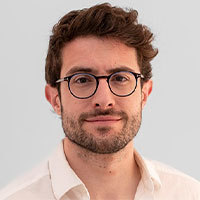 Fernando Bonete Vizcaíno
Director del Grado en Comunicación Estratégica, Protocolo y Organización de Eventos.
Fernando Bonete Vizcaíno
Director del Grado en Comunicación Estratégica, Protocolo y Organización de Eventos.Profesor de Gabinetes de Comunicación y relaciones con los medios Director of the Degree in Strategic Communication, Protocol and Event Organization.
Professor of Communication and Media Relations Offices Doctor en Comunicación Social y profesor acreditado como contratado doctor (ANECA). En redes sociales es uno de los divulgadores digitales más importantes de España. Su cuenta de Instagram @en_bookle reúne a más de 460.000 personas en torno a la cultura y la literatura. Además, ha colaborado con programas y medios de comunicación como Espejo Público de Antena 3, La Tarde de COPE, El Mundo, El Debate. Su labor ha sido reconocida con el Premio EDE Literatura 2022 y el Premio Lolo de Periodismo 2023. Es autor de los libros "Cultura de la cancelación. No hables, no preguntes, no pienses" (Ciudadela); “La guerra imaginaria. Desmontando el mito de la inteligencia artificial con Asimov” (Siglo XXI); "Malas lenguas. 100 anécdotas de escritores de casi todos los tiempos" (Ediciones B); y "Un libro para cada año de tu vida" (Temas de Hoy). Como investigador, ha publicado en revistas científicas y libros de alcance nacional e internacional, y es miembro de los grupos de investigación "Innovación en Comunicación y Medios" (INNOMEDIA) de la Universidad Nebrija e "Investigación en Comunicación a través de la Imagen y el Diseño" (ICOIDI) de la Universidad CEU San Pablo. También ha formado parte de proyectos de investigación para el Observatorio Digital de Medios de la Comisión Europea; el Ministerio de Ciencia, Innovación y Universidades; Atresmedia Corporación; Observatorio Oi2 de RTVE; y Santander Universities. Con anterioridad, ha ocupado cargos de gestión académica como director del Grado en Humanidades de la USP CEU, así como de director del Máster en Economía Circular y Desarrollo Sostenible de la Escuela de Unidad Editorial. Graduado en Humanidades y en Periodismo, y licenciado en Música, especialidad de Violín, por el Real Conservatorio Superior de Música de Madrid, ha completado su formación con el Máster Universitario en Formación para Profesorado, y el Título de Experto Universitario en Gestión y Desarrollo de Aplicaciones Web.
 María Elísabet Benavent Ferri
Profesora de Escritura y Argumentación
Professor of Writing and Argumentation
Licenciada en Comunicación Audiovisual por la Universidad CEU Cardenal Herrera, Magíster en Comunicación y Arte por la Universidad Complutense de Madrid y diploma en el Curso de Adaptación Pedagógica por la Universidad Complutense de Madrid. Cuenta con más de una década de experiencia en el mercado editorial, con veinticinco títulos publicados (Editorial Penguin Random House) y 5.000.000 de ejemplares vendidos. Ha participado como productora ejecutiva para Netflix en la adaptación audiovisual de sus novelas y cuenta con un curso de escritura creativa propio en la plataforma Escuela Cursiva. En 2014 dejó su trabajo en el departamento de comunicación de una multinacional para dedicarse de lleno a la escritura. Actualmente, colabora con la revista "Normal" (Grupo VIPS) como articulista y con "Cosmopolitan" (Grupo Hearst) dirigiendo un club de lectura a través de la cuenta de Instagram de la publicación.
María Elísabet Benavent Ferri
Profesora de Escritura y Argumentación
Professor of Writing and Argumentation
Licenciada en Comunicación Audiovisual por la Universidad CEU Cardenal Herrera, Magíster en Comunicación y Arte por la Universidad Complutense de Madrid y diploma en el Curso de Adaptación Pedagógica por la Universidad Complutense de Madrid. Cuenta con más de una década de experiencia en el mercado editorial, con veinticinco títulos publicados (Editorial Penguin Random House) y 5.000.000 de ejemplares vendidos. Ha participado como productora ejecutiva para Netflix en la adaptación audiovisual de sus novelas y cuenta con un curso de escritura creativa propio en la plataforma Escuela Cursiva. En 2014 dejó su trabajo en el departamento de comunicación de una multinacional para dedicarse de lleno a la escritura. Actualmente, colabora con la revista "Normal" (Grupo VIPS) como articulista y con "Cosmopolitan" (Grupo Hearst) dirigiendo un club de lectura a través de la cuenta de Instagram de la publicación.
 Pilar Bernat Sánchez
Profesora de Nuevas tecnologías para la comunicación
Professor of New Technologies for Communication
Periodista, Historiadora y profesora universitaria. Pilar Bernat está especializada en Tecnologías de la Información y la Comunicación y más concretamente en el ámbito de las Telecomunicaciones. Es fundadora y CEO de Novocuatro Ediciones, empresa propietaria de Telefonía y Comunicaciones, revista decana del sector con 25 años de antigüedad, de Zonamovilidad.es desde hace 17 años y Autoconectado.es (2017). Igualmente, colabora con otros medios y publicaciones. En el ámbito editorial, es miembro de la Junta directiva de la asociación de editores españoles, renombrada como CLABE. Actualmente centra su experiencia investigadora en el ámbito de la inteligencia artificial y la automatización de trabajos sistematizados en las redacciones. De hecho, es Consejera y Directora de Desarrollo de Negocio de Leo Robot IA Ha sido reconocida con el Premio Fundación Vodafone de Periodismo en 2013 y como una de las 100 (77) influencers del mundo en el ámbito de la tecnología. Pilar es invitada habitual en programas de televisión, radio, seminarios, cursos y conferencias tanto en el ámbito nacional como internacional. Co-autora de libros y publicaciones empresariales y autora del libro ‘Macias’ (sobre notas autobiográficas del protagonista). Ha sido conductora del I y II Foro del Observatorio Nacional de 5G; moderadora en el Foro de la Gobernanza de Internet (IGF) 2019 y es ponente y conferenciante habitual en universidades, empresas, eventos, centros educativos e instituciones oficiales. Igualmente ha sido elegida Jurado internacional en los premios tecnológicos empresariales NetEvents. Trabajó durante ocho años en Televisión Española, donde fue Directora de Relaciones Internacionales de la Dirección de Deportes, en la Radio Televisión Olímpica (COI) y en Prensa Española, entre otros. Así mismo, ha sido asesora y colaboradora en el ámbito de la comunicación para gobiernos extranjeros, grandes multinacionales e instituciones. Como profesora universitaria, lleva 10 años impartiendo clase de Nuevas Tecnologías y Sociedad de la Información. Actualmente en la Universidad Nebrija y anteriormente en Villanueva C.U. Así mismo tiene experiencia en MOOCs Asignada por el Instituto de Estudios Tecnológicos como una de las cinco mujeres de mayor influencia en el mundo de la tecnología en España, su cuenta de Twitter fue elegida como una de las 25 más interesantes para saber de IA.
Pilar Bernat Sánchez
Profesora de Nuevas tecnologías para la comunicación
Professor of New Technologies for Communication
Periodista, Historiadora y profesora universitaria. Pilar Bernat está especializada en Tecnologías de la Información y la Comunicación y más concretamente en el ámbito de las Telecomunicaciones. Es fundadora y CEO de Novocuatro Ediciones, empresa propietaria de Telefonía y Comunicaciones, revista decana del sector con 25 años de antigüedad, de Zonamovilidad.es desde hace 17 años y Autoconectado.es (2017). Igualmente, colabora con otros medios y publicaciones. En el ámbito editorial, es miembro de la Junta directiva de la asociación de editores españoles, renombrada como CLABE. Actualmente centra su experiencia investigadora en el ámbito de la inteligencia artificial y la automatización de trabajos sistematizados en las redacciones. De hecho, es Consejera y Directora de Desarrollo de Negocio de Leo Robot IA Ha sido reconocida con el Premio Fundación Vodafone de Periodismo en 2013 y como una de las 100 (77) influencers del mundo en el ámbito de la tecnología. Pilar es invitada habitual en programas de televisión, radio, seminarios, cursos y conferencias tanto en el ámbito nacional como internacional. Co-autora de libros y publicaciones empresariales y autora del libro ‘Macias’ (sobre notas autobiográficas del protagonista). Ha sido conductora del I y II Foro del Observatorio Nacional de 5G; moderadora en el Foro de la Gobernanza de Internet (IGF) 2019 y es ponente y conferenciante habitual en universidades, empresas, eventos, centros educativos e instituciones oficiales. Igualmente ha sido elegida Jurado internacional en los premios tecnológicos empresariales NetEvents. Trabajó durante ocho años en Televisión Española, donde fue Directora de Relaciones Internacionales de la Dirección de Deportes, en la Radio Televisión Olímpica (COI) y en Prensa Española, entre otros. Así mismo, ha sido asesora y colaboradora en el ámbito de la comunicación para gobiernos extranjeros, grandes multinacionales e instituciones. Como profesora universitaria, lleva 10 años impartiendo clase de Nuevas Tecnologías y Sociedad de la Información. Actualmente en la Universidad Nebrija y anteriormente en Villanueva C.U. Así mismo tiene experiencia en MOOCs Asignada por el Instituto de Estudios Tecnológicos como una de las cinco mujeres de mayor influencia en el mundo de la tecnología en España, su cuenta de Twitter fue elegida como una de las 25 más interesantes para saber de IA.
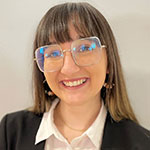 Tania Brandariz Portela
Profesora de Opinión pública
Professor of Institutional Protocol and International Protocol
Doctora en Periodismo por la Universidad Complutense de Madrid. Acreditada por ANECA. Máster Universitario en Estudios Avanzados en Comunicación Política. Como Colaboradora Honorífica en la Universidad Complutense de Madrid, ha impartido sesiones sobre Sociología, Opinión Pública y Comunicación Política y Género en los grados en Periodismo, Comunicación Audiovisual y Publicidad y Relaciones Públicas y en el Máster en Estudios Avanzados en Comunicación Política. Investiga sobre los marcos de interpretación políticos del feminismo y el anti-feminismo, publicando artículos científicos y capítulos de libro sobre la temática. Pertenece al grupo de investigación Produsage cultural en redes sociales y Estudios literarios y culturales y estudios de género, en la Universidad Complutense de Madrid. Por otro lado, ha colaborado con European Journalism Observatory, The Conversation y la Revista de la Asociación de Comunicación Política. Profesora de Marketing Online y de Herramientas TIC en el Máster en Marketing y Publicidad Digital, Universidad Nebrija. Se ha desempeñado como periodista digital en Nós Televisión, La Voz de Galicia y La Mirada Común.
Tania Brandariz Portela
Profesora de Opinión pública
Professor of Institutional Protocol and International Protocol
Doctora en Periodismo por la Universidad Complutense de Madrid. Acreditada por ANECA. Máster Universitario en Estudios Avanzados en Comunicación Política. Como Colaboradora Honorífica en la Universidad Complutense de Madrid, ha impartido sesiones sobre Sociología, Opinión Pública y Comunicación Política y Género en los grados en Periodismo, Comunicación Audiovisual y Publicidad y Relaciones Públicas y en el Máster en Estudios Avanzados en Comunicación Política. Investiga sobre los marcos de interpretación políticos del feminismo y el anti-feminismo, publicando artículos científicos y capítulos de libro sobre la temática. Pertenece al grupo de investigación Produsage cultural en redes sociales y Estudios literarios y culturales y estudios de género, en la Universidad Complutense de Madrid. Por otro lado, ha colaborado con European Journalism Observatory, The Conversation y la Revista de la Asociación de Comunicación Política. Profesora de Marketing Online y de Herramientas TIC en el Máster en Marketing y Publicidad Digital, Universidad Nebrija. Se ha desempeñado como periodista digital en Nós Televisión, La Voz de Galicia y La Mirada Común.
 Txuma Campos Bouzas
Profesor de Diseño web y aplicaciones móviles
Professor of Public Opinion
Licenciado en Publicidad y Relaciones Públicas por la Universidad de Navarra. Cuenta con más de 20 años de experiencia en la definición estratégica, dirección y desarrollo de proyectos para plataformas digitales con fuerte en foco en iniciativas de branded content. Después de liderar la plataforma Marca.com para los grupos de comunicación Recoletos y Unidad Editorial, actualmente desarrolla alguna de las iniciativas de contenido de marca más relevantes en España como son Vodafone Yu o Aprendamos Juntos de BBVA.
Txuma Campos Bouzas
Profesor de Diseño web y aplicaciones móviles
Professor of Public Opinion
Licenciado en Publicidad y Relaciones Públicas por la Universidad de Navarra. Cuenta con más de 20 años de experiencia en la definición estratégica, dirección y desarrollo de proyectos para plataformas digitales con fuerte en foco en iniciativas de branded content. Después de liderar la plataforma Marca.com para los grupos de comunicación Recoletos y Unidad Editorial, actualmente desarrolla alguna de las iniciativas de contenido de marca más relevantes en España como son Vodafone Yu o Aprendamos Juntos de BBVA.
 Raúl Casañas Guallar
Profesor de Gestión del Patrocinio y Mecenazgo
Professor of Sponsorship and Patronage Management
Licenciado en Publicidad y RRPP. Doctorando. Consultor especializado en el desarrollo de estrategias de patrocinio y comunicación. Cuenta con más de 20 años de experiencia internacional tanto en cliente (ISDIN, ORBEA) como en agencias líderes(Ogilvy, BBDO, Saatchi & Saatchi, McCann), donde ha desarrollado campañas globales para compañías como Unilever, PepsiCo, CaixaBank, Heineken, Sanofi o Roca. Ha gestionado patrocinios en escenarios globales como Roland-Garros, la America’s Cup, torneos ATP en Europa y América, o el European Tour de golf, y ha trabajado junto a atletas como Carlos Alcaraz y Mirra Andreeva, a los que incorporó desde sus primeros pasos como promesas internacionales y con quienes ha desarrollado acciones de product placement en Netflix y acciones de cobranding y licensing. Su trayectoria combina la experiencia en deporte, salud, cultura, gran consumo y entretenimiento, siempre con un enfoque en la estrategia, la colaboración con entre marcas y el cobranding, la creatividad y las personas. Actualmente compagina su labor como asesor independiente con la docencia, con el objetivo de acercar a los estudiantes a la realidad profesional del marketing y el patrocinio.
Raúl Casañas Guallar
Profesor de Gestión del Patrocinio y Mecenazgo
Professor of Sponsorship and Patronage Management
Licenciado en Publicidad y RRPP. Doctorando. Consultor especializado en el desarrollo de estrategias de patrocinio y comunicación. Cuenta con más de 20 años de experiencia internacional tanto en cliente (ISDIN, ORBEA) como en agencias líderes(Ogilvy, BBDO, Saatchi & Saatchi, McCann), donde ha desarrollado campañas globales para compañías como Unilever, PepsiCo, CaixaBank, Heineken, Sanofi o Roca. Ha gestionado patrocinios en escenarios globales como Roland-Garros, la America’s Cup, torneos ATP en Europa y América, o el European Tour de golf, y ha trabajado junto a atletas como Carlos Alcaraz y Mirra Andreeva, a los que incorporó desde sus primeros pasos como promesas internacionales y con quienes ha desarrollado acciones de product placement en Netflix y acciones de cobranding y licensing. Su trayectoria combina la experiencia en deporte, salud, cultura, gran consumo y entretenimiento, siempre con un enfoque en la estrategia, la colaboración con entre marcas y el cobranding, la creatividad y las personas. Actualmente compagina su labor como asesor independiente con la docencia, con el objetivo de acercar a los estudiantes a la realidad profesional del marketing y el patrocinio.
 Eduardo Castillo Lozano
Profesor de Habilidades comunicativas: escritura y oratoria
Professor of Communication Skills: Writing and Public Speaking
Director del Grado en Periodismo de la Universidad Nebrija. Doctor en Comunicación Audiovisual por la UCM. Licenciado en Periodismo por la Universidad San Pablo CEU de Madrid. Máster en Información Económica APIE (Asociación de Periodistas de Información Económica) por UCM. Actualmente compagina su labor en la dirección académica del Grado con el ejercicio profesional en Capital Radio, emisora especializada en economía donde dirige y presenta programas especializados en empresa y tecnología. En 2017 recibió la Antena de Oro en la categoría de radio por esta actividad. Profesional del periodismo con más de veinte años de experiencia en medios escritos, televisivos y radiofónicos, así como en asesorías de comunicación, ha presentado programas de televisión en RTVE, Telemadrid y Canal 9 y ha desempeñado cargos de redactor jefe y subdirector en La Gaceta de los Negocios. Actualmente imparte clases de Redacción Periodística, Periodismo Especializado, de Locución y Presentación y de Taller de Locución en el Máster en Formación Permanente en Radio, Podcast y Audio digital Nebrija-Cadena SER.
Eduardo Castillo Lozano
Profesor de Habilidades comunicativas: escritura y oratoria
Professor of Communication Skills: Writing and Public Speaking
Director del Grado en Periodismo de la Universidad Nebrija. Doctor en Comunicación Audiovisual por la UCM. Licenciado en Periodismo por la Universidad San Pablo CEU de Madrid. Máster en Información Económica APIE (Asociación de Periodistas de Información Económica) por UCM. Actualmente compagina su labor en la dirección académica del Grado con el ejercicio profesional en Capital Radio, emisora especializada en economía donde dirige y presenta programas especializados en empresa y tecnología. En 2017 recibió la Antena de Oro en la categoría de radio por esta actividad. Profesional del periodismo con más de veinte años de experiencia en medios escritos, televisivos y radiofónicos, así como en asesorías de comunicación, ha presentado programas de televisión en RTVE, Telemadrid y Canal 9 y ha desempeñado cargos de redactor jefe y subdirector en La Gaceta de los Negocios. Actualmente imparte clases de Redacción Periodística, Periodismo Especializado, de Locución y Presentación y de Taller de Locución en el Máster en Formación Permanente en Radio, Podcast y Audio digital Nebrija-Cadena SER.
 Javier Chivite Fernández
Profesor de Plan de Comunicación
Professor of Communication Plan
Doctor en Periodismo por la Universidad Complutense de Madrid. Acreditado por ACAP. Licenciado en Periodismo, es profesor universitario desde el año 2005. Ha trabajado en la cadena COPE, en la diputación de Toledo y en Radio Intercontinental. En la actualidad, es portavoz del Centro de Emergencias 112 de la Comunidad de Madrid, colaborando en la gestión de la comunicación en situaciones de crisis y emergencias como la nevada que originó la borrasca Filomena, incendios forestales y fenómenos meteorológicos adversos. Está en posesión de la Medalla al Mérito de Protección Civil en la categoría de Bronce y con distintivo Blanco concedida por la Dirección General de Protección Civil y Emergencias del Ministerio del Interior en 2018 al equipo de comunicación de Emergencias 112 Comunidad de Madrid.
Javier Chivite Fernández
Profesor de Plan de Comunicación
Professor of Communication Plan
Doctor en Periodismo por la Universidad Complutense de Madrid. Acreditado por ACAP. Licenciado en Periodismo, es profesor universitario desde el año 2005. Ha trabajado en la cadena COPE, en la diputación de Toledo y en Radio Intercontinental. En la actualidad, es portavoz del Centro de Emergencias 112 de la Comunidad de Madrid, colaborando en la gestión de la comunicación en situaciones de crisis y emergencias como la nevada que originó la borrasca Filomena, incendios forestales y fenómenos meteorológicos adversos. Está en posesión de la Medalla al Mérito de Protección Civil en la categoría de Bronce y con distintivo Blanco concedida por la Dirección General de Protección Civil y Emergencias del Ministerio del Interior en 2018 al equipo de comunicación de Emergencias 112 Comunidad de Madrid.
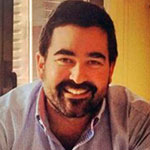 Jorge De Blas y García
Profesor de Taller de diseño y organización de eventos I
Professor of Design and organization of events workshop I
Es uno de los profesionales con mayor experiencia en la gestión de eventos dentro del sector del marketing digital en España. Licenciado en Publicidad y RRPP y en Comunicación Audiovisual por la Universidad Antonio de Nebrija. Así como Master en Publicidad Interactiva por la Universidad Complutense, MBA en EOBS y PDD en Comunicación y Management por el Instituto de empresa.
Ha sido el responsable de la organización de las 10 ediciones del Festival Inspirational de la asociación IAB Spain, un evento dedicado a la innovación en comunicación digital con reconocimiento internacional e incluido en el Gunn Report. Asimismo ha participado en 3 ediciones del evento Interact, congreso internacional anual de IAB Europe y ha participado en la organización de 6 ediciones del Festival El Sol.
Dentro de IAB Spain ha organizado también 9 ediciones de su Seminario de Publicidad Digital, desarrollado conjuntamente con la AEA (Asociación Española de Anunciantes). A esta experiencia se une la organización de más de 250 cursos, así como 150 eventos profesionales, entre ellos, Internet es tuyo, Publicidad en el Museo, Trialogos, Inspirational Talks, Congreso de Regulación, Pasarela Mobile, etc.
Jorge De Blas y García
Profesor de Taller de diseño y organización de eventos I
Professor of Design and organization of events workshop I
Es uno de los profesionales con mayor experiencia en la gestión de eventos dentro del sector del marketing digital en España. Licenciado en Publicidad y RRPP y en Comunicación Audiovisual por la Universidad Antonio de Nebrija. Así como Master en Publicidad Interactiva por la Universidad Complutense, MBA en EOBS y PDD en Comunicación y Management por el Instituto de empresa.
Ha sido el responsable de la organización de las 10 ediciones del Festival Inspirational de la asociación IAB Spain, un evento dedicado a la innovación en comunicación digital con reconocimiento internacional e incluido en el Gunn Report. Asimismo ha participado en 3 ediciones del evento Interact, congreso internacional anual de IAB Europe y ha participado en la organización de 6 ediciones del Festival El Sol.
Dentro de IAB Spain ha organizado también 9 ediciones de su Seminario de Publicidad Digital, desarrollado conjuntamente con la AEA (Asociación Española de Anunciantes). A esta experiencia se une la organización de más de 250 cursos, así como 150 eventos profesionales, entre ellos, Internet es tuyo, Publicidad en el Museo, Trialogos, Inspirational Talks, Congreso de Regulación, Pasarela Mobile, etc.
 David del Pino Díaz
Profesor de Trabajo fin de Grado
Professor of End of Degree Project
Doctor en Comunicación Política y Teoría de la Comunicación e Información por la Universidad Complutense de Madrid. Con un máster en Estudios Avanzados en Comunicación Política y el grado de Ciencias Políticas por la Universidad Complutense de Madrid, ha centrado su carrera investigadora en cómo se construye el carisma en las sociedades contemporáneas, la centralidad del campo mediático y la conformación de mitos políticos a través de series de televisión. En referencia a estas cuestiones ha presentado diversas ponencias en Congresos Internacionales y Nacionales, así como ha publicado diversos artículos académicos.
David del Pino Díaz
Profesor de Trabajo fin de Grado
Professor of End of Degree Project
Doctor en Comunicación Política y Teoría de la Comunicación e Información por la Universidad Complutense de Madrid. Con un máster en Estudios Avanzados en Comunicación Política y el grado de Ciencias Políticas por la Universidad Complutense de Madrid, ha centrado su carrera investigadora en cómo se construye el carisma en las sociedades contemporáneas, la centralidad del campo mediático y la conformación de mitos políticos a través de series de televisión. En referencia a estas cuestiones ha presentado diversas ponencias en Congresos Internacionales y Nacionales, así como ha publicado diversos artículos académicos.
 Luis Jorge Fraga Pombo
Profesor de Redacción informativa
Professor of Informative Writing
Licenciado en Geografía e Historia por la Universidad Nacional de Educación a Distancia (UNED) y Máster de Investigación Aplicada a la Comunicación por la Universidad Rey Juan Carlos (URJC).
Profesionalmente, ejerce como asesor de comunicación corporativa, habiéndose especializado en la formación de portavoces, el diseño de eventos corporativos y la creación de contenidos de marca. Es director de Comunicación de SEIOMM (Sociedad Española de Investigación Ósea y del Metabolismo Mineral) y de ANCES (Asociación Nacional de CEEIs Españoles). Vocal de la Junta Directiva de DIRCOM Galicia.
Como docente, en la Universidad Nebrija, imparte la asignatura de Redacción Informativa en este grado, además de diferentes seminarios y talleres. Pertenece además al cuerpo docente de Atresmedia Formación, grupo al que sigue vinculado después de una etapa de 20 años como presentador, editor y reportero de sus espacios informativos.
Sus inicios profesionales se dieron en la radio, en la cadena SER y en Antena 3 Radio.
Es coautor junto con María Solar del libro “¿Quieres ser periodista?”, publicado por Ediciones Siruela en 2017.
Luis Jorge Fraga Pombo
Profesor de Redacción informativa
Professor of Informative Writing
Licenciado en Geografía e Historia por la Universidad Nacional de Educación a Distancia (UNED) y Máster de Investigación Aplicada a la Comunicación por la Universidad Rey Juan Carlos (URJC).
Profesionalmente, ejerce como asesor de comunicación corporativa, habiéndose especializado en la formación de portavoces, el diseño de eventos corporativos y la creación de contenidos de marca. Es director de Comunicación de SEIOMM (Sociedad Española de Investigación Ósea y del Metabolismo Mineral) y de ANCES (Asociación Nacional de CEEIs Españoles). Vocal de la Junta Directiva de DIRCOM Galicia.
Como docente, en la Universidad Nebrija, imparte la asignatura de Redacción Informativa en este grado, además de diferentes seminarios y talleres. Pertenece además al cuerpo docente de Atresmedia Formación, grupo al que sigue vinculado después de una etapa de 20 años como presentador, editor y reportero de sus espacios informativos.
Sus inicios profesionales se dieron en la radio, en la cadena SER y en Antena 3 Radio.
Es coautor junto con María Solar del libro “¿Quieres ser periodista?”, publicado por Ediciones Siruela en 2017.
 Fernando García-Mercadal García-Loygorri
Profesor de Heráldica, vexilología y derecho premial y Protocolo institucional
Professor of Heraldry, vexillology and award law and Institutional Protocol
Fernando García-Mercadal García-Loygorri
Profesor de Heráldica, vexilología y derecho premial y Protocolo institucional
Professor of Heraldry, vexillology and award law and Institutional Protocol
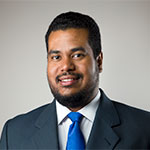 Luis A. García Segura
Profesor de Desarrollo del espíritu participativo y solidario
Professor of Development of the participatory and supportive spirit
Doctor en Derecho por la Universidad Antonio de Nebrija. Licenciado en Derecho por la Pontificia Universidad Católica Madre y Maestra de Santo Domingo en el año 2007, Cum Laude y Máster en Derecho Empresarial por la Universidad de Nebrija. Ha trabajado tanto para el sector público como privado en temas de educación y Derecho. Forma parte del equipo de Asesoría Jurídica de la Universidad Nebrija, además de ser coordinador académico del Máster en Comunicación Estratégica para gobiernos e instituciones públicas. Es abogado ejerciente del Ilustre Colegio de Abogados de Madrid (ICAM) y miembro académico de la American Bar Association (ABA) de Estados Unidos de América.
Luis A. García Segura
Profesor de Desarrollo del espíritu participativo y solidario
Professor of Development of the participatory and supportive spirit
Doctor en Derecho por la Universidad Antonio de Nebrija. Licenciado en Derecho por la Pontificia Universidad Católica Madre y Maestra de Santo Domingo en el año 2007, Cum Laude y Máster en Derecho Empresarial por la Universidad de Nebrija. Ha trabajado tanto para el sector público como privado en temas de educación y Derecho. Forma parte del equipo de Asesoría Jurídica de la Universidad Nebrija, además de ser coordinador académico del Máster en Comunicación Estratégica para gobiernos e instituciones públicas. Es abogado ejerciente del Ilustre Colegio de Abogados de Madrid (ICAM) y miembro académico de la American Bar Association (ABA) de Estados Unidos de América.
 Carmen González Román
Profesora de Gestión de la Comunicación interna
Professor of Internal Communication Management
Licenciada en Ciencias de la Información (especialidad Comunicación audiovisual) por la UCM y máster en Narrativa.
Colaboradora de cátedra en la Universidad Complutense, tiene más de 10 años de docencia en varias escuelas de negocios y en la Facultad de CC de la Información. Ha sido directora de Comunicación interna en Banco Santander España hasta 2014 y tiene más de 25 años de experiencia en comunicación tanto en medios como en agencias y distintas empresas. Actualmente es asesora en comunicación interna empresarial para la Agencia Informagen y Comunicación SL de la que es socia fundadora y profesora en la Universidad Antonio de Nebrija y distintas escuelas de negocio.
Miembro de distintos foros de comunicación empresarial y autora del libro Conectar negocio y personas: Experiencias y tendencias en comunicación interna, (Estudio Comunicación), se ha especializado en el diseño e implantación de estrategias de comunicación interna en empresas.
Carmen González Román
Profesora de Gestión de la Comunicación interna
Professor of Internal Communication Management
Licenciada en Ciencias de la Información (especialidad Comunicación audiovisual) por la UCM y máster en Narrativa.
Colaboradora de cátedra en la Universidad Complutense, tiene más de 10 años de docencia en varias escuelas de negocios y en la Facultad de CC de la Información. Ha sido directora de Comunicación interna en Banco Santander España hasta 2014 y tiene más de 25 años de experiencia en comunicación tanto en medios como en agencias y distintas empresas. Actualmente es asesora en comunicación interna empresarial para la Agencia Informagen y Comunicación SL de la que es socia fundadora y profesora en la Universidad Antonio de Nebrija y distintas escuelas de negocio.
Miembro de distintos foros de comunicación empresarial y autora del libro Conectar negocio y personas: Experiencias y tendencias en comunicación interna, (Estudio Comunicación), se ha especializado en el diseño e implantación de estrategias de comunicación interna en empresas.
 Carlos Jiménez Narros
Profesor de Diseño Web y Aplicaciones Móviles
Professor of Web Design and Mobile Applications
Doctor por la Universidad Complutense de Madrid. Profesor acreditado por la ACAP. Periodista con experiencia profesional en La Voz del Tajo, Radio Arco Iris y As. Además, ha trabajado en las revistas especializadas: PC Actual, Elektor, Deliberación, Games/consolas y Redes Lan, entre otras. Su trayectoria profesional está centrada en el diseño gráfico, técnicas de autoedición y proyectos de preimpresión y ha diseñado imágenes corporativas y proyectos gráficos para empresas e instituciones. Desde 1994 es profesor de la Universidad Antonio de Nebrija. Es autor de ponencias y comunicaciones en distintos congresos internacionales sobre comunicación, diseño y enseñanza. Su área de investigación está centrada en el diseño gráfico, nuevas tecnologías e innovación docente.
Carlos Jiménez Narros
Profesor de Diseño Web y Aplicaciones Móviles
Professor of Web Design and Mobile Applications
Doctor por la Universidad Complutense de Madrid. Profesor acreditado por la ACAP. Periodista con experiencia profesional en La Voz del Tajo, Radio Arco Iris y As. Además, ha trabajado en las revistas especializadas: PC Actual, Elektor, Deliberación, Games/consolas y Redes Lan, entre otras. Su trayectoria profesional está centrada en el diseño gráfico, técnicas de autoedición y proyectos de preimpresión y ha diseñado imágenes corporativas y proyectos gráficos para empresas e instituciones. Desde 1994 es profesor de la Universidad Antonio de Nebrija. Es autor de ponencias y comunicaciones en distintos congresos internacionales sobre comunicación, diseño y enseñanza. Su área de investigación está centrada en el diseño gráfico, nuevas tecnologías e innovación docente.
 Olalla Jiménez Olalde
Profesora de Escenografía y Dirección de Arte en Eventos
Professor of Scenography and Art Direction in Events
Profesional de la organización y producción de eventos con más de 25 años de experiencia en funciones sobre concepto, diseño, coordinación y ejecución de eventos corporativos e institucionales tanto nacionales como internacionales de las agencias Comunica + A, Cool Lines Comunicación y Grupo Eñe de Comunicación. Actualmente es socia fundadora y directora de la productora de eventos The Tank Producciones. Además, ha desarrollado su labor como docente de Producción de Eventos y de Grandes Eventos desde 2007 y ha participado en diferentes conferencias, habiendo sido profesora de la Escuela Internacional de Protocolo y de la Universidad Camilo José Cela. Durante seis años asumió el cargo de directora académica del Grado y Máster de Eventos y Protocolo de dicha universidad. En estos momentos, continúa impartiendo clases en el Máster de Comunicación, Eventos y RRPP de ESDEN.
Olalla Jiménez Olalde
Profesora de Escenografía y Dirección de Arte en Eventos
Professor of Scenography and Art Direction in Events
Profesional de la organización y producción de eventos con más de 25 años de experiencia en funciones sobre concepto, diseño, coordinación y ejecución de eventos corporativos e institucionales tanto nacionales como internacionales de las agencias Comunica + A, Cool Lines Comunicación y Grupo Eñe de Comunicación. Actualmente es socia fundadora y directora de la productora de eventos The Tank Producciones. Además, ha desarrollado su labor como docente de Producción de Eventos y de Grandes Eventos desde 2007 y ha participado en diferentes conferencias, habiendo sido profesora de la Escuela Internacional de Protocolo y de la Universidad Camilo José Cela. Durante seis años asumió el cargo de directora académica del Grado y Máster de Eventos y Protocolo de dicha universidad. En estos momentos, continúa impartiendo clases en el Máster de Comunicación, Eventos y RRPP de ESDEN.
 Julia Victoria Jolin Rubio
Profesora de Gestión de la restauración en eventos
Professor of Restoration management at events
Licenciada en Publicidad y RRPP por la Universidad de Valladolid, Licenciada en Comunicación Audiovisual por la Universidad Europea Miguel de Cervantes y con un Master en Dirección de Negocios Internacionales por la University of West of England.
Actualmente soy Responsable Comercial en MICE CATERING, empresa con arraigo en el sector del turismo de negocios y del catering de gama alta especializado en eventos corporativos. Mi trayectoria profesional ha sido diversa, recorriendo diferentes agencias y proveedores del sector y como consultora de eventos en el área de patrocinios de Banco Santander.
Julia Victoria Jolin Rubio
Profesora de Gestión de la restauración en eventos
Professor of Restoration management at events
Licenciada en Publicidad y RRPP por la Universidad de Valladolid, Licenciada en Comunicación Audiovisual por la Universidad Europea Miguel de Cervantes y con un Master en Dirección de Negocios Internacionales por la University of West of England.
Actualmente soy Responsable Comercial en MICE CATERING, empresa con arraigo en el sector del turismo de negocios y del catering de gama alta especializado en eventos corporativos. Mi trayectoria profesional ha sido diversa, recorriendo diferentes agencias y proveedores del sector y como consultora de eventos en el área de patrocinios de Banco Santander.
 Mª Sonia Lazaro Vaquerizo
Profesora de Organización de la comunicación
Professor of Organization of the communication
Licenciada en Psicología (UAM, 1991). Curso Micromarketing, gestión y control del marketing (ESIC, 1996), CAP (1999). Formador de formadores (1999). Actualmente en la Universidad Nebrija es Coordinadora de Movilidad Internacional para la Facultad de Comunicación y Artes, y hasta julio de 2023 fue directora del Grado en Diseño de Moda. Ha impartido clases en IED en el curso de estilismo de moda. Trabajó en la agencia de RRPP y Comunicación Área Comunicación Global como directora de agencia y cuentas, implementando estrategias de comunicación corporativa, institucional y de marca para empresas del sector moda, tecnología, lifestyle (Calvin Klein, Burberry, Gucci, Grupo Tod's, Gianfranco Ferré, Etro, Ralph Lauren, Room Mate Hoteles, Technogym entre otras). En el campo de la Responsabilidad Social Corporativa y Moda Ecológica, fue directora de comunicación y estrategia de la marca Ecoalf.
Comenzó su carrera profesional en el sector de las editoriales de revistas, trabajando para el grupo Ediciones Condé Nast, en la revista Vogue España, como coordinadora en los departamentos de moda, proyectos especiales, publicidad y marketing.
Mª Sonia Lazaro Vaquerizo
Profesora de Organización de la comunicación
Professor of Organization of the communication
Licenciada en Psicología (UAM, 1991). Curso Micromarketing, gestión y control del marketing (ESIC, 1996), CAP (1999). Formador de formadores (1999). Actualmente en la Universidad Nebrija es Coordinadora de Movilidad Internacional para la Facultad de Comunicación y Artes, y hasta julio de 2023 fue directora del Grado en Diseño de Moda. Ha impartido clases en IED en el curso de estilismo de moda. Trabajó en la agencia de RRPP y Comunicación Área Comunicación Global como directora de agencia y cuentas, implementando estrategias de comunicación corporativa, institucional y de marca para empresas del sector moda, tecnología, lifestyle (Calvin Klein, Burberry, Gucci, Grupo Tod's, Gianfranco Ferré, Etro, Ralph Lauren, Room Mate Hoteles, Technogym entre otras). En el campo de la Responsabilidad Social Corporativa y Moda Ecológica, fue directora de comunicación y estrategia de la marca Ecoalf.
Comenzó su carrera profesional en el sector de las editoriales de revistas, trabajando para el grupo Ediciones Condé Nast, en la revista Vogue España, como coordinadora en los departamentos de moda, proyectos especiales, publicidad y marketing.
 María del Carmen Llovet Rodríguez
Profesora de Protocolo internacional
Professor of International protocol
Doctora internacional en comunicación por la Universidad de Navarra y Acreditada Contratada Doctor por ANECA, soy profesora de comunicación, marketing y tendencias de moda. He trabajado en el campus de Pekín de la universidad americana NYIT, en la Universitat Internacional de Catalunya y en la Universidad Villanueva en Madrid. He publicado sobre el visual merchandising de las marcas en el retail de moda y la imagen de la infancia en el entorno comercial y digital, en revistas como Comunicar, El Profesional de la Información, Revista española de sociología, Prisma Social, Adresearch, Doxa comunicación, y en editoriales de prestigio como Nordicom, Pirámide y EUNSA. He realizado estancias de investigación en Southern Illinois University y en Glasgow School for Business and Society de la Glasgow Caledonian University, así como de formación en Radboud University, Países Bajos. Ha sido periodista de moda en la agencia informativa Aceprensa y consultora en Gómez-Acebo Comunicación, con clientes como Advanced Micro Devices, ForoInfraestructuras o Helsinki España Human Dimension. Ha colaborado en eventos del sector de la moda como el blog L'Oreal en la Mercedes Benz Fashion Week y en jornadas del Museo del Traje. Su investigación ha generado visibilidad en Smoda-El País, El periódico y ABC entre otros foros mediáticos.
María del Carmen Llovet Rodríguez
Profesora de Protocolo internacional
Professor of International protocol
Doctora internacional en comunicación por la Universidad de Navarra y Acreditada Contratada Doctor por ANECA, soy profesora de comunicación, marketing y tendencias de moda. He trabajado en el campus de Pekín de la universidad americana NYIT, en la Universitat Internacional de Catalunya y en la Universidad Villanueva en Madrid. He publicado sobre el visual merchandising de las marcas en el retail de moda y la imagen de la infancia en el entorno comercial y digital, en revistas como Comunicar, El Profesional de la Información, Revista española de sociología, Prisma Social, Adresearch, Doxa comunicación, y en editoriales de prestigio como Nordicom, Pirámide y EUNSA. He realizado estancias de investigación en Southern Illinois University y en Glasgow School for Business and Society de la Glasgow Caledonian University, así como de formación en Radboud University, Países Bajos. Ha sido periodista de moda en la agencia informativa Aceprensa y consultora en Gómez-Acebo Comunicación, con clientes como Advanced Micro Devices, ForoInfraestructuras o Helsinki España Human Dimension. Ha colaborado en eventos del sector de la moda como el blog L'Oreal en la Mercedes Benz Fashion Week y en jornadas del Museo del Traje. Su investigación ha generado visibilidad en Smoda-El País, El periódico y ABC entre otros foros mediáticos.
 Virginia E. Navarro Mangado
Profesora de Responsabilidad Social Corporativa y Trabajo de Fin de Grado
Professor of Corporate Social Responsibility and Final Degree Project
Doctora en Comunicación Audiovisual y Publicidad por la Universidad Complutense de Madrid.
Desde 1992 ha desarrollado su actividad profesional como Consultora de Comunicación, especialista en Procesos de Influencia para diversas instituciones entre los que destacan el Ministerio de Defensa (ISFAS), Instituto de Empresa, Ilustre Colegio de Abogados de Madrid, Visa Citibank España, American Express, Ayuntamiento de Cuenca, Cepsa, NH Hoteles, Unión Fenosa, Telefónica de España, Instituto Vasco de Administraciones Públicas, Grupo Popular, Santa Lucía Seguros, Laboratorios Wyeth, Morgan Stanley, Antena 3, Iberia, Grupo Cortefiel, Sage, DHL, Crédito y Caución, Junta de Extremadura..
Como docente ha diseñado e impartido programas formativos en grados y postgrados universitarios (Universidad Nebrija y UCM) y ciclos técnicos superiores (Cámara de Comercio de Madrid)
Labor investigadora “La incidencia de las campañas electorales en la construcción de la imagen de los hospitales. Las crisis en los hospitales madrileños.” Tesis doctoral. (2015). UCM
Directora de Comunicación, Marketing y Recursos Humanos en Security World Wide, S.L.: Diseño, organización y ejecución de las estrategias de comunicación de los espacios dedicados a organización de eventos y espacios de ventas temporales.
Virginia E. Navarro Mangado
Profesora de Responsabilidad Social Corporativa y Trabajo de Fin de Grado
Professor of Corporate Social Responsibility and Final Degree Project
Doctora en Comunicación Audiovisual y Publicidad por la Universidad Complutense de Madrid.
Desde 1992 ha desarrollado su actividad profesional como Consultora de Comunicación, especialista en Procesos de Influencia para diversas instituciones entre los que destacan el Ministerio de Defensa (ISFAS), Instituto de Empresa, Ilustre Colegio de Abogados de Madrid, Visa Citibank España, American Express, Ayuntamiento de Cuenca, Cepsa, NH Hoteles, Unión Fenosa, Telefónica de España, Instituto Vasco de Administraciones Públicas, Grupo Popular, Santa Lucía Seguros, Laboratorios Wyeth, Morgan Stanley, Antena 3, Iberia, Grupo Cortefiel, Sage, DHL, Crédito y Caución, Junta de Extremadura..
Como docente ha diseñado e impartido programas formativos en grados y postgrados universitarios (Universidad Nebrija y UCM) y ciclos técnicos superiores (Cámara de Comercio de Madrid)
Labor investigadora “La incidencia de las campañas electorales en la construcción de la imagen de los hospitales. Las crisis en los hospitales madrileños.” Tesis doctoral. (2015). UCM
Directora de Comunicación, Marketing y Recursos Humanos en Security World Wide, S.L.: Diseño, organización y ejecución de las estrategias de comunicación de los espacios dedicados a organización de eventos y espacios de ventas temporales.
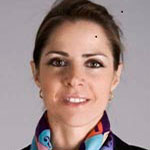 Ana Belén Oliver González
Profesora de Historia del Ceremonial y protocolo
Professor of Ceremonial history and protocol
Doctora en Ciencias Políticas y Relaciones Internacionales por la Universidad Complutense de Madrid. Máster universitario en Comunicación Política y empresarial. Grado en Protocolo y Relaciones Institucionales.
2018-actualidad: Clases de Comunicación y Negociación. Clases de RSC. Máster Universitario en Comunicación Política y Empresarial. Facultad de Ciencias de la Comunicación, Universidad Camilo José Cela, Madrid.
2019-actualidad: Clases de Eventos Sociales, Corporativos, Institucionales y Políticos. Máster Universitario en Organización y Dirección de Eventos. Clases de Historia del Ceremonial y Protocolo. Grado en Comunicación Corporativa y Dirección de Eventos. Universidad de Nebrija, Madrid.
Más de tres años de experiencia en protocolo y organización de eventos para galería de arte. Comunicación y campañas de publicidad. Organización de exposiciones en diferentes galerías de arte. Organización y asistencia a ferias de arte nacionales e internacionales. Ayudante del Jefe de Protocolo y Relaciones Institucionales del Arzobispado de Barcelona. Comunicación, notas de prensa, organización de eventos con asistencia de autoridades institucionales y personalidades
Ana Belén Oliver González
Profesora de Historia del Ceremonial y protocolo
Professor of Ceremonial history and protocol
Doctora en Ciencias Políticas y Relaciones Internacionales por la Universidad Complutense de Madrid. Máster universitario en Comunicación Política y empresarial. Grado en Protocolo y Relaciones Institucionales.
2018-actualidad: Clases de Comunicación y Negociación. Clases de RSC. Máster Universitario en Comunicación Política y Empresarial. Facultad de Ciencias de la Comunicación, Universidad Camilo José Cela, Madrid.
2019-actualidad: Clases de Eventos Sociales, Corporativos, Institucionales y Políticos. Máster Universitario en Organización y Dirección de Eventos. Clases de Historia del Ceremonial y Protocolo. Grado en Comunicación Corporativa y Dirección de Eventos. Universidad de Nebrija, Madrid.
Más de tres años de experiencia en protocolo y organización de eventos para galería de arte. Comunicación y campañas de publicidad. Organización de exposiciones en diferentes galerías de arte. Organización y asistencia a ferias de arte nacionales e internacionales. Ayudante del Jefe de Protocolo y Relaciones Institucionales del Arzobispado de Barcelona. Comunicación, notas de prensa, organización de eventos con asistencia de autoridades institucionales y personalidades
 Andrés Pereda Martínez
Profesor de Empresa y Gestión económica
Professor of Business and Economic Management
Cuenta con más de diez años de experiencia vinculada a la empresa desarrollada en la Cámara de Comercio de España y, previamente, en el Ministerio de Economía y Competitividad (Secretaría de Estado de Comercio), etapa en la que formó parte de los consejos de administración de ICEX y de España Expansión Exterior. También es miembro del Patronato del Foro de Marcas Renombradas Españolas.
En el ámbito económico, ha cursado el Máster en Gestión y Dirección de Empresas (Universidad Carlos III de Madrid) y el Programa ejecutivo de Dirección Internacional de la Empresa (ICEX-CECO), además de formación especializada en el ámbito de la inversión. Es licenciado en Periodismo (Universidad Carlos III de Madrid) y en Comunicación Audiovisual (Universidad Complutense de Madrid) y ha cursado el Máster en Comunicación Institucional y Política (Universidad Carlos III de Madrid y diario El Mundo). Adicionalmente, ha participado en diversos programas internacionales en el área de Comunicación Política (Georgetown) y Liderazgo Global (Harvard).
Andrés Pereda Martínez
Profesor de Empresa y Gestión económica
Professor of Business and Economic Management
Cuenta con más de diez años de experiencia vinculada a la empresa desarrollada en la Cámara de Comercio de España y, previamente, en el Ministerio de Economía y Competitividad (Secretaría de Estado de Comercio), etapa en la que formó parte de los consejos de administración de ICEX y de España Expansión Exterior. También es miembro del Patronato del Foro de Marcas Renombradas Españolas.
En el ámbito económico, ha cursado el Máster en Gestión y Dirección de Empresas (Universidad Carlos III de Madrid) y el Programa ejecutivo de Dirección Internacional de la Empresa (ICEX-CECO), además de formación especializada en el ámbito de la inversión. Es licenciado en Periodismo (Universidad Carlos III de Madrid) y en Comunicación Audiovisual (Universidad Complutense de Madrid) y ha cursado el Máster en Comunicación Institucional y Política (Universidad Carlos III de Madrid y diario El Mundo). Adicionalmente, ha participado en diversos programas internacionales en el área de Comunicación Política (Georgetown) y Liderazgo Global (Harvard).
 Mª del Mar Ramos Rodríguez
Coordinadora de prácticas de la FCA
FCA Internship Coordinator
Doctora en Bellas Artes por la Universidad Complutense de Madrid. Licenciada en Ciencias de la Imagen y Sonido por la misma universidad. Su práctica profesional se ha desarrollado en el mundo de la fotografía, la producción audiovisual y el diseño gráfico y editorial. Destaca su experiencia laboral en el mundo de la publicidad cinematográfica, en estudios de diseño y en la productora cinematográfica CineCompany, así como en las empresas de comunicación editorial Grupo Zeta y Vocento. En la Universidad de Nebrija imparte docencia desde 1998 en programas de grado y postgrado en las áreas de Comunicación Audiovisual, Periodismo y Publicidad al tiempo que lo compagina con proyectos gráficos y audiovisuales para empresas e instituciones. Desde el año 2022 es la coordinadora académica de Prácticas de la Facultad de Comunicación y Artes.
Mª del Mar Ramos Rodríguez
Coordinadora de prácticas de la FCA
FCA Internship Coordinator
Doctora en Bellas Artes por la Universidad Complutense de Madrid. Licenciada en Ciencias de la Imagen y Sonido por la misma universidad. Su práctica profesional se ha desarrollado en el mundo de la fotografía, la producción audiovisual y el diseño gráfico y editorial. Destaca su experiencia laboral en el mundo de la publicidad cinematográfica, en estudios de diseño y en la productora cinematográfica CineCompany, así como en las empresas de comunicación editorial Grupo Zeta y Vocento. En la Universidad de Nebrija imparte docencia desde 1998 en programas de grado y postgrado en las áreas de Comunicación Audiovisual, Periodismo y Publicidad al tiempo que lo compagina con proyectos gráficos y audiovisuales para empresas e instituciones. Desde el año 2022 es la coordinadora académica de Prácticas de la Facultad de Comunicación y Artes.
 María del Carmen Rodrigo Rodríguez
Profesora de Taller de creación de discursos públicos
Professor of Workshop for creating public speeches
Licenciada en Ciencias de la Información, Periodismo, UCM y Graduada en Ciencias Políticas y Sociología, UNED. Master en Gestión y Administración de Entidades no Lucrativas y Fundaciones. Facultad de C.C. Económicas y Empresariales. Univ. Autónoma de Madrid, 2003.
Certificado suficiencia investigadora. Dpto. Filología. CC de la Información Univ. Complutense de Madrid, 1996. C.A.P . Universidad Complutense de Madrid, junio 1996.Aliter. Curso Superior de Talento y Liderazgo. Becada Fundación Rafael del Pino. 2014
En el área profesional ha sido Jefa de Gabinete de la Consejería de Cultura, Turismo y Deporte de la Comunidad de Madrid.(Julio 2020-junio 2023). Fundadora Eme erre comunicación (Abril 2015-junio 2020). En Vodafone España ha desarrollado distintas funciones:Directora de Relaciones Externas y Comunicación Corporativa (2008-2014), Manager de Comunicación Externa (2004- 2008) y en Fundación Vodafone España como Directora de Difusión e Imagen (1998- 2004).
María del Carmen Rodrigo Rodríguez
Profesora de Taller de creación de discursos públicos
Professor of Workshop for creating public speeches
Licenciada en Ciencias de la Información, Periodismo, UCM y Graduada en Ciencias Políticas y Sociología, UNED. Master en Gestión y Administración de Entidades no Lucrativas y Fundaciones. Facultad de C.C. Económicas y Empresariales. Univ. Autónoma de Madrid, 2003.
Certificado suficiencia investigadora. Dpto. Filología. CC de la Información Univ. Complutense de Madrid, 1996. C.A.P . Universidad Complutense de Madrid, junio 1996.Aliter. Curso Superior de Talento y Liderazgo. Becada Fundación Rafael del Pino. 2014
En el área profesional ha sido Jefa de Gabinete de la Consejería de Cultura, Turismo y Deporte de la Comunidad de Madrid.(Julio 2020-junio 2023). Fundadora Eme erre comunicación (Abril 2015-junio 2020). En Vodafone España ha desarrollado distintas funciones:Directora de Relaciones Externas y Comunicación Corporativa (2008-2014), Manager de Comunicación Externa (2004- 2008) y en Fundación Vodafone España como Directora de Difusión e Imagen (1998- 2004).
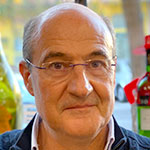 Alfredo Antonio Rodríguez Gómez
Profesor de Diplomacia y resolución de conflictos internacionales
Professor of Diplomacy and international conflict resolution
Doctor acreditado (AD, CD y PUP ANECA) en CC de la Información por la Universidad Complutense de Madrid. DEA en Derecho Internacional Público y Relaciones Internacionales por la UNED. Imparte asignaturas relacionadas con la comunicación internacional, comunicación de crisis, diplomacia pública, relaciones internacionales, seguridad y defensa, metodología de la investigación y organización de eventos. Investigador en comunicación y relaciones internacionales y miembro del Comité Científico de la revista de la Universidad Militar Nueva Granada. Ha dirigido numerosas tesis doctorales, trabajos de fin de grado y máster.
Es conferenciante y consultor en comunicación, internacionalización, diplomacia en todos sus campos, eventos y relaciones internacionales, actividades a las que ha dedicado una buena parte de su vida laboral. Militar en la reserva y piloto de helicópteros, ha sido asesor en el Gabinete del ministro de Defensa en relaciones públicas, eventos y protocolo.
Alfredo Antonio Rodríguez Gómez
Profesor de Diplomacia y resolución de conflictos internacionales
Professor of Diplomacy and international conflict resolution
Doctor acreditado (AD, CD y PUP ANECA) en CC de la Información por la Universidad Complutense de Madrid. DEA en Derecho Internacional Público y Relaciones Internacionales por la UNED. Imparte asignaturas relacionadas con la comunicación internacional, comunicación de crisis, diplomacia pública, relaciones internacionales, seguridad y defensa, metodología de la investigación y organización de eventos. Investigador en comunicación y relaciones internacionales y miembro del Comité Científico de la revista de la Universidad Militar Nueva Granada. Ha dirigido numerosas tesis doctorales, trabajos de fin de grado y máster.
Es conferenciante y consultor en comunicación, internacionalización, diplomacia en todos sus campos, eventos y relaciones internacionales, actividades a las que ha dedicado una buena parte de su vida laboral. Militar en la reserva y piloto de helicópteros, ha sido asesor en el Gabinete del ministro de Defensa en relaciones públicas, eventos y protocolo.
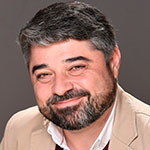 Jacobo Ruiz Gil
Profesor de Taller de diseño y organización de eventos II y Congresos, ferias y exposiciones
Professor of Design and Event Organization Workshop II and Congresses, Fairs and Exhibitions
Es un profesional con más de 25 años de experiencia en el sector de los Eventos, tanto corporativos como deportivos e institucionales. Licenciado en Economía. Licenciado en Investigación y Técnicas de Mercado (ITM). Máster en Organización de Eventos, Protocolo y Turismo de Negocios por el AEA Business School. Ha sido el responsable de producción de varias agencias de Eventos en España y actualmente es el Responsable de Eventos Híbridos y Virtuales de CWT Meetings & Events a nivel mundial. Es miembro de la Junta Directiva de AEVEA (Agencias de Eventos Españolas Asociadas). Ha sido jurado en varias ocasiones de los premios FIP, un festival internacional de marketing, nuevas técnicas de comunicación, innovación y eventos. Ha ganado varios premios Eventoplus en España al Mejor Evento de Presentación de Producto, de Escenografía y de Decoración, así como al Mejor Evento Conferencia y Espectáculo. Ha colaborado con el Ministerio de Educación a través del INCUAL para el desarrollo del grado de formación profesional en Eventos corporativos. Profesor en varias Universidades y Escuelas tanto de Master como de Grado asociado a la comunicación y los eventos.
Jacobo Ruiz Gil
Profesor de Taller de diseño y organización de eventos II y Congresos, ferias y exposiciones
Professor of Design and Event Organization Workshop II and Congresses, Fairs and Exhibitions
Es un profesional con más de 25 años de experiencia en el sector de los Eventos, tanto corporativos como deportivos e institucionales. Licenciado en Economía. Licenciado en Investigación y Técnicas de Mercado (ITM). Máster en Organización de Eventos, Protocolo y Turismo de Negocios por el AEA Business School. Ha sido el responsable de producción de varias agencias de Eventos en España y actualmente es el Responsable de Eventos Híbridos y Virtuales de CWT Meetings & Events a nivel mundial. Es miembro de la Junta Directiva de AEVEA (Agencias de Eventos Españolas Asociadas). Ha sido jurado en varias ocasiones de los premios FIP, un festival internacional de marketing, nuevas técnicas de comunicación, innovación y eventos. Ha ganado varios premios Eventoplus en España al Mejor Evento de Presentación de Producto, de Escenografía y de Decoración, así como al Mejor Evento Conferencia y Espectáculo. Ha colaborado con el Ministerio de Educación a través del INCUAL para el desarrollo del grado de formación profesional en Eventos corporativos. Profesor en varias Universidades y Escuelas tanto de Master como de Grado asociado a la comunicación y los eventos.
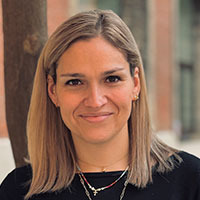 Marta Saavedra Llamas
Profesora de Redacción informativa
Professor of Informative Writing
Doctora en Ciencias de la Información por la Universidad Complutense de Madrid. Profesora acreditada por ANECA. Realizó en la misma universidad el postgrado “Comunicación bursátil y sectores financieros” y la Licenciatura en Periodismo. En el área profesional ha trabajado como redactora en los periódicos regionales El faro de Murcia y El diario de Murcia y en los económicos El nuevo Lunes, Dirigentes y Nuestros Negocios. De 2008 a 2010 fue redactora jefe de estas dos últimas publicaciones y del confidencial Dirigentesdigital.com. Cuenta con experiencia en el ámbito de la comunicación institucional, habiendo formado parte del equipo de la Agencia de Calidad, Acreditación y Prospectiva de las Universidades de Madrid (ACAP), donde trabajó anteriormente en el área de acreditación del profesorado. Actualmente, es directora de la revista NUESTRA (Universidad Nebrija).
Marta Saavedra Llamas
Profesora de Redacción informativa
Professor of Informative Writing
Doctora en Ciencias de la Información por la Universidad Complutense de Madrid. Profesora acreditada por ANECA. Realizó en la misma universidad el postgrado “Comunicación bursátil y sectores financieros” y la Licenciatura en Periodismo. En el área profesional ha trabajado como redactora en los periódicos regionales El faro de Murcia y El diario de Murcia y en los económicos El nuevo Lunes, Dirigentes y Nuestros Negocios. De 2008 a 2010 fue redactora jefe de estas dos últimas publicaciones y del confidencial Dirigentesdigital.com. Cuenta con experiencia en el ámbito de la comunicación institucional, habiendo formado parte del equipo de la Agencia de Calidad, Acreditación y Prospectiva de las Universidades de Madrid (ACAP), donde trabajó anteriormente en el área de acreditación del profesorado. Actualmente, es directora de la revista NUESTRA (Universidad Nebrija).
 Leyre Sáenz de Pipaón
Profesora de Derecho Constitucional e Instituciones del Estado
Professor of Constitutional Law and State Institutions
Doctora en Derecho y Licenciada en Derecho por la Universidad Complutense de Madrid. Acreditada contratada doctora por ANECA. Licenciada en Criminología por la Universidad Camilo José Cela. Profesora de Derecho Penal y de Criminología en Grado, y de Asesoría Penal y Proceso Penal en el Máster Universitario en Acceso al Ejercicio de la Abogacía y la Procura. Igualmente, es Profesora del Centro de Estudios del Ilustre Colegio de la Abogacía de Madrid (ICAM). Además de su labor docente y de investigación, es Abogada del ICAM con despacho profesional de actuación en casos de toda índole penal. Autora de diversas publicaciones de temática jurídica, así como directora y ponente invitada de distintos cursos, congresos, seminarios, y jornadas de Derecho, tanto en el ámbito académico como profesional. Miembro de la I Agenda de la Comunicación ICAM de Mujeres Juristas y colaboradora, asimismo, en distintos programas y medios de comunicación: Atresmedia, Telemadrid y TRECE TV.
Leyre Sáenz de Pipaón
Profesora de Derecho Constitucional e Instituciones del Estado
Professor of Constitutional Law and State Institutions
Doctora en Derecho y Licenciada en Derecho por la Universidad Complutense de Madrid. Acreditada contratada doctora por ANECA. Licenciada en Criminología por la Universidad Camilo José Cela. Profesora de Derecho Penal y de Criminología en Grado, y de Asesoría Penal y Proceso Penal en el Máster Universitario en Acceso al Ejercicio de la Abogacía y la Procura. Igualmente, es Profesora del Centro de Estudios del Ilustre Colegio de la Abogacía de Madrid (ICAM). Además de su labor docente y de investigación, es Abogada del ICAM con despacho profesional de actuación en casos de toda índole penal. Autora de diversas publicaciones de temática jurídica, así como directora y ponente invitada de distintos cursos, congresos, seminarios, y jornadas de Derecho, tanto en el ámbito académico como profesional. Miembro de la I Agenda de la Comunicación ICAM de Mujeres Juristas y colaboradora, asimismo, en distintos programas y medios de comunicación: Atresmedia, Telemadrid y TRECE TV.
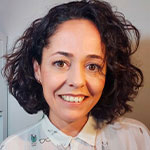 Gema Sánchez Muñoz
Profesora de Comunicación digital y redes sociales
Digital Communication and Social Networks Teacher
Doctora en Comunicación Audiovisual, Publicidad y Relaciones Publicas por la Universidad Complutense de Madrid con la tesis: Impactos de la llegada de Netflix a España: la evolución de los hábitos de consumo televisivo en la generación X ante la implantación del modelo de emisión a través de Internet.
2000 Licenciada en Comunicación Audiovisual por la Universidad Complutense de Madrid en la Facultad de Ciencias de la Información.
Desde 2020. Coordinadora del módulo Comunicación digital II: Analítica, buscadores, publicidad y CRM en el máster de Máster en Dirección de Comunicación Corporativa y Digital en el que imparto las sesiones de SEM, publicidad programática y Mailchimp. Universidad de Loyola Andalucía.
2016-2019 Profesora asociada de la asignatura Planificación de medios convencionales y online en Universidad Loyola Andalucía.
Gema Sánchez Muñoz
Profesora de Comunicación digital y redes sociales
Digital Communication and Social Networks Teacher
Doctora en Comunicación Audiovisual, Publicidad y Relaciones Publicas por la Universidad Complutense de Madrid con la tesis: Impactos de la llegada de Netflix a España: la evolución de los hábitos de consumo televisivo en la generación X ante la implantación del modelo de emisión a través de Internet.
2000 Licenciada en Comunicación Audiovisual por la Universidad Complutense de Madrid en la Facultad de Ciencias de la Información.
Desde 2020. Coordinadora del módulo Comunicación digital II: Analítica, buscadores, publicidad y CRM en el máster de Máster en Dirección de Comunicación Corporativa y Digital en el que imparto las sesiones de SEM, publicidad programática y Mailchimp. Universidad de Loyola Andalucía.
2016-2019 Profesora asociada de la asignatura Planificación de medios convencionales y online en Universidad Loyola Andalucía.
 Sissy Melissa Teves Romero
Profesora de Lenguas Modernas
Professor of Modern Languages
Graduada en Filología Inglesa y licenciada en Traducción e Interpretación por la Universidad Ricardo Palma. Máster en Estudios Literarios y Culturales Británicos por la UAM, donde se encuentra realizando el doctorado en Estudios Artísticos, Literarios y de la Cultura. Cuenta con una amplia experiencia docente. En el ámbito de la enseñanza de idiomas, ha trabajado como profesora de inglés y español como lengua extranjera en diversas instituciones públicas y privadas en Perú, España y Bélgica. Asimismo, ha impartido clases de estudios de género y literatura tanto en inglés como en español. Cuenta con numerosas comunicaciones en congresos nacionales e internacionales. Sus campos de investigación incluyen teoría postcolonial, estudios de género y literatura inglesa del siglo XVIII. También le interesan las nuevas tecnologías aplicadas a la enseñanza de lenguas modernas, la comunicación intercultural y el aprendizaje basado en proyectos.
Sissy Melissa Teves Romero
Profesora de Lenguas Modernas
Professor of Modern Languages
Graduada en Filología Inglesa y licenciada en Traducción e Interpretación por la Universidad Ricardo Palma. Máster en Estudios Literarios y Culturales Británicos por la UAM, donde se encuentra realizando el doctorado en Estudios Artísticos, Literarios y de la Cultura. Cuenta con una amplia experiencia docente. En el ámbito de la enseñanza de idiomas, ha trabajado como profesora de inglés y español como lengua extranjera en diversas instituciones públicas y privadas en Perú, España y Bélgica. Asimismo, ha impartido clases de estudios de género y literatura tanto en inglés como en español. Cuenta con numerosas comunicaciones en congresos nacionales e internacionales. Sus campos de investigación incluyen teoría postcolonial, estudios de género y literatura inglesa del siglo XVIII. También le interesan las nuevas tecnologías aplicadas a la enseñanza de lenguas modernas, la comunicación intercultural y el aprendizaje basado en proyectos.
 Amparo Torres Menéndez
Profesora de Comunicación corporativa
Professor of Corporate communication
Licenciada en Historia Moderna y Contemporánea por la Universidad Autónoma de Madrid. Ha cursado un MBA por el Instituto de Empresa, Máster en Business Comunications por la Escuela de Periodismo de la Universidad Columbia-Missouri y Máster en Comunicación Política por el ESIC. Es también coach ejecutivo certificado. Inició su carrera profesional como técnico de Comunicación en el Grupo Continente-Saudisa (actual Carrefour), y posteriormente dirigió la comunicación de las empresas Terra-Lycos (Grupo Telefónica), British Telecom y Ericcson, etapa que repartió entre España y la sede global de la compañía en Estocolmo (Suecia). En el lado de la agencia, ha sido directora de Expansión para el Grupo Beaumont Bennet (Grey & Trace), y directora del Área de Telecomunicaciones de Sanchis & Asociados, consultora de referencia en comunicación política e institucional en España y Latinoamérica (hoy integrada en el grupo británico Citigate). En el ámbito institucional, ha trabajado como asesora técnica para la Concejalía de Comercio y Telecomunicaciones del Ayuntamiento de San Fernando de Henares (Madrid). Es también docente en la especialidad de Comunicación y Marca Personal en escuelas de negocio y en la Universidad de Nebrija. Actualmente trabaja como consultora independiente de comunicación y coaching ejecutivo.
Amparo Torres Menéndez
Profesora de Comunicación corporativa
Professor of Corporate communication
Licenciada en Historia Moderna y Contemporánea por la Universidad Autónoma de Madrid. Ha cursado un MBA por el Instituto de Empresa, Máster en Business Comunications por la Escuela de Periodismo de la Universidad Columbia-Missouri y Máster en Comunicación Política por el ESIC. Es también coach ejecutivo certificado. Inició su carrera profesional como técnico de Comunicación en el Grupo Continente-Saudisa (actual Carrefour), y posteriormente dirigió la comunicación de las empresas Terra-Lycos (Grupo Telefónica), British Telecom y Ericcson, etapa que repartió entre España y la sede global de la compañía en Estocolmo (Suecia). En el lado de la agencia, ha sido directora de Expansión para el Grupo Beaumont Bennet (Grey & Trace), y directora del Área de Telecomunicaciones de Sanchis & Asociados, consultora de referencia en comunicación política e institucional en España y Latinoamérica (hoy integrada en el grupo británico Citigate). En el ámbito institucional, ha trabajado como asesora técnica para la Concejalía de Comercio y Telecomunicaciones del Ayuntamiento de San Fernando de Henares (Madrid). Es también docente en la especialidad de Comunicación y Marca Personal en escuelas de negocio y en la Universidad de Nebrija. Actualmente trabaja como consultora independiente de comunicación y coaching ejecutivo.
 Pedro Tomás Tortosa Segura
Profesor de Protocolo empresarial y social y Estructura y dinámicas de la sociedad internacional
Professor of Business and Social Protocol and Structure and dynamics of international society
Licenciado en Ciencias de la Información, Rama Periodismo. Y Doctorando con Diploma de Estudios Avanzados por la misma facultad de la Universidad Complutense de Madrid en el Departamento de Historia de la Comunicación Social tras superar el periodo de docencia, con cursos y seminarios del programa de doctorado Historia y Comunicación en el Mundo Contemporáneo, y con la tesina sobre marketing político, titulada “Periodismo Cívico: Teoría y Aplicaciones”.
Ha impartido docencia en la Facultad de Ciencias de la Información de la Complutense sobre Periodismo Cívico y ha sido profesor de Comunicación On y Off en el Máster de Comunicación de la Escuela Europea de Negocios. 2011-2013
Profesionalmente, y en paralelo, ha trabajado como comunicador y periodista con más de 25 años de experiencia en el sector de los medios de información y en el mundo de la comunicación y las PR, tanto off como online, y especializado en sectores como la tecnología, la economía, el deporte o el consumo. Actualmente, Director de Coonic PR, donde colabora en transformar el mundo de la comunicación de sus clientes desde un PR tradicional a una comunicación 360º. Especializado en comunicación corporativa e institucional, comunicación de crisis y formación de portavoces.
Pedro Tomás Tortosa Segura
Profesor de Protocolo empresarial y social y Estructura y dinámicas de la sociedad internacional
Professor of Business and Social Protocol and Structure and dynamics of international society
Licenciado en Ciencias de la Información, Rama Periodismo. Y Doctorando con Diploma de Estudios Avanzados por la misma facultad de la Universidad Complutense de Madrid en el Departamento de Historia de la Comunicación Social tras superar el periodo de docencia, con cursos y seminarios del programa de doctorado Historia y Comunicación en el Mundo Contemporáneo, y con la tesina sobre marketing político, titulada “Periodismo Cívico: Teoría y Aplicaciones”.
Ha impartido docencia en la Facultad de Ciencias de la Información de la Complutense sobre Periodismo Cívico y ha sido profesor de Comunicación On y Off en el Máster de Comunicación de la Escuela Europea de Negocios. 2011-2013
Profesionalmente, y en paralelo, ha trabajado como comunicador y periodista con más de 25 años de experiencia en el sector de los medios de información y en el mundo de la comunicación y las PR, tanto off como online, y especializado en sectores como la tecnología, la economía, el deporte o el consumo. Actualmente, Director de Coonic PR, donde colabora en transformar el mundo de la comunicación de sus clientes desde un PR tradicional a una comunicación 360º. Especializado en comunicación corporativa e institucional, comunicación de crisis y formación de portavoces.
 Olivier Vallecillo Martín
Profesor de Marketing y Publicidad
Professor of Marketing and Advertising
Licenciado en Ciencias Empresariales. Doctorando. CEO de Newlink Spain y consultor estratégico de referencia, Olivier Vallecillo cuenta con más de 25 años de experiencia liderando proyectos innovadores en comunicación, marketing y desarrollo de marcas. Fundador de Globally, consultora pionera en comunicación y estilo de vida, ha trabajado con compañías de sectores como lujo, moda, tecnología, gastronomía, deportes y retail, diseñando estrategias que conectan marcas con sus audiencias a través de un propósito claro y diferenciador. Experto en el desarrollo, posicionamiento y legado de marcas, su enfoque combina creatividad, innovación y un profundo entendimiento del consumidor en un entorno competitivo y en constante cambio. Miembro del consejo Asesor de la Facultad de Comunicación y Artes de la Universidad Nebrija desde 2021 y Miembro de la Junta de ADC, Asociación de consultoras de Comunicación de España 10 años. Además, complementa su trayectoria profesional con una destacada labor docente, formando a nuevas generaciones en disciplinas relacionadas con la marca y la comunicación estratégica.
Olivier Vallecillo Martín
Profesor de Marketing y Publicidad
Professor of Marketing and Advertising
Licenciado en Ciencias Empresariales. Doctorando. CEO de Newlink Spain y consultor estratégico de referencia, Olivier Vallecillo cuenta con más de 25 años de experiencia liderando proyectos innovadores en comunicación, marketing y desarrollo de marcas. Fundador de Globally, consultora pionera en comunicación y estilo de vida, ha trabajado con compañías de sectores como lujo, moda, tecnología, gastronomía, deportes y retail, diseñando estrategias que conectan marcas con sus audiencias a través de un propósito claro y diferenciador. Experto en el desarrollo, posicionamiento y legado de marcas, su enfoque combina creatividad, innovación y un profundo entendimiento del consumidor en un entorno competitivo y en constante cambio. Miembro del consejo Asesor de la Facultad de Comunicación y Artes de la Universidad Nebrija desde 2021 y Miembro de la Junta de ADC, Asociación de consultoras de Comunicación de España 10 años. Además, complementa su trayectoria profesional con una destacada labor docente, formando a nuevas generaciones en disciplinas relacionadas con la marca y la comunicación estratégica.
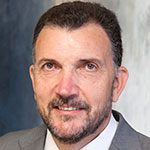 José Manuel Velasco Guardado
Profesor de Comunicación Política y Formación de Portavoces
Professor of Political Communication and Speaker Training
Licenciado en Ciencias de la Información por la Universidad Complutense de Madrid y ha cursado el Advanced Strategic Program en el Institute for Management Development (IMD) de Laussane (Suiza). Es coach ejecutivo y de equipos.
De junio de 2017 a julio de 2019 fue el primer español en presidir la Global Alliance for Public Relations and Communication Managament, la federación que aglutina a asociaciones de comunicadores y académicos de todo el mundo. Actualmente, como inmediate past chair sigue formando parte del consejo y del comité ejecutivo y preside el European Regional Council.
Inició su carrera profesional en Asturias como periodista en el diario LA NUEVA ESPAÑA. Posteriormente, ya en Madrid, dirigió la comunicación de las empresas Renfe, Unión Fenosa y Fomento de Construcciones y Contratas, de cuyos comités de dirección formó parte. Entre 2008 y 2014 fue presidente de la Asociación de Directivos de Comunicación de España.
Actualmente trabaja como consultor de comunicación coach ejecutivo y formador en liderazgo, gestión de equipos y comunicación.
José Manuel Velasco Guardado
Profesor de Comunicación Política y Formación de Portavoces
Professor of Political Communication and Speaker Training
Licenciado en Ciencias de la Información por la Universidad Complutense de Madrid y ha cursado el Advanced Strategic Program en el Institute for Management Development (IMD) de Laussane (Suiza). Es coach ejecutivo y de equipos.
De junio de 2017 a julio de 2019 fue el primer español en presidir la Global Alliance for Public Relations and Communication Managament, la federación que aglutina a asociaciones de comunicadores y académicos de todo el mundo. Actualmente, como inmediate past chair sigue formando parte del consejo y del comité ejecutivo y preside el European Regional Council.
Inició su carrera profesional en Asturias como periodista en el diario LA NUEVA ESPAÑA. Posteriormente, ya en Madrid, dirigió la comunicación de las empresas Renfe, Unión Fenosa y Fomento de Construcciones y Contratas, de cuyos comités de dirección formó parte. Entre 2008 y 2014 fue presidente de la Asociación de Directivos de Comunicación de España.
Actualmente trabaja como consultor de comunicación coach ejecutivo y formador en liderazgo, gestión de equipos y comunicación.
More Academic Information
Official Degree:
Bachelor's Degree in Corporate Communication, Protocol and Event Organization
*In Verification Process:
Bachelor's Degree in Strategic Communication, Protocol and Event Organization
Those interested in studying and obtaining the Undergraduate Degree in Strategic Communication, Protocol and Event Organization from Nebrija University should be people with an open mind, restless spirit, adaptability, creative, proactive, independent but at the same time be able to work as a team, interested in an environment of communication and fluent in oral and written communication, with concern for current affairs, cultural interest and technical skills. People with a marked communicative nature and with a certain critical ability, wanting to tell -in any format- what happens in the world, to participate in the ideation and creation of informative and entertainment products and with interest in the structures of advertising and branding and business communication techniques.
Upon completion of the Undergraduate Degree in Strategic Communication, Protocol and Event Organization, graduates have acquired the knowledge and skills required to work in the field of corporate and institutional communication. The degree trains these professionals so that they are able to manage the global communication of an organization, as well as the different specializations that contribute to it. The Degree in Strategic Communication, Protocol and Event Organization is aimed at training highly specialized professionals with the ability to analyze situations and act on the basis of social norms and a work ethic.
240 ECTS credits.
- Minimum 12 ECTS and maximum 90 ECTS full time.
- Minimum 12 ECTS and maximum 50 ECTS for part-time.
By enrollment and academic period.
225:
- Classroom Attendance 125 seats:
- Nebrija University 80 places
- Felipe Moreno Higher Education Center 45 places
- No Classroom Attendance or virtual 100 places
- Nebrija University 100 places
Center responsible:School of Communication and Arts
- Felipe Moreno affiliated center
Branch of knowledge: Social and Legal Sciences
Type of Education: Classroom attendance / Online
Academic year in which it was implemented: 2017 - 2018
Languages: Spanish / English
University Services: [+info]
Competences
General Competences- Evaluate, make decisions and plan actions related to the field of communication.
- Apply theoretical knowledge to the understanding of reality and the resolution of specific problems in the area of Social and Legal Sciences, Engineering, and Arts and Humanities, especially in relation to the field of Strategic Communication, Protocol and Event Organization.
- Demonstrate the correct use of oral and written language.
- Collect, know how to discriminate and categorize information from bibliographic and documentary sources.
- Apply critical reasoning based on analysis and synthesis.
- Acquire an ethical commitment at work, knowing the general legal system and especially the Constitution and State institutions.
- Use ingenuity and develop creativity and innovation.
- Demonstrate social sensitivity in the development of his/her professional and/or academic work, in compliance with current regulations at both the Spanish and European levels, codes of good practice, criteria of self-control, gender equality, special needs of people with disabilities, protection of children and, in general, the principles contained in the Spanish Constitution and the values of the Culture of Peace.
- Demonstrate the ability to work as a team, developing interpersonal relationships.
- Correctly handle new communication technologies.
- Demonstrate the correct use of oral and written language in English language in the subject of modern languages and in those subjects taught in English.
- Effectively lead communicative projects, assuming the principles of social responsibility.
- Demonstrate the ability to adapt in changing environments, especially in the exercise of organizing events.
- Apply the knowledge and skills acquired during the development of the training program with resolution and effectiveness.
- Know the basic characteristics of corporate, business and institutional communication to effectively transmit the information of organizations through the relevant dissemination methods.
- Know and understand the professional and business environment of Strategic Communication, Protocol and Event Organization related to the exercise of the profession.
- Acquire and know how to apply the necessary knowledge in the area of economics to be able to elaborate and manage a budget as well as to know the basic knowledge of contracting and financing in order to apply it to the different types of events, conferences, fairs and/or acts
- Knowledge and understanding of the concept of International Society and the elements that make it up.
- Knowledge of the elements and factors that shape international reality, understanding and incorporating its multidisciplinary character.
- Demonstrate the ability to correctly express ideas and arguments both in a written and oral manner, properly handling the techniques of expression, presentation, defense and argumentation and mastering the principles of rhetoric and oratory.
- Know, apply and determine the techniques of protocol in all types of events, as well as the staging of both institutional and corporate ceremonies, both national and international.
- Know, understand the historical and social importance of the ceremonies and the protocolary rules and uses.
- Acquire and know how to apply to the profession the necessary knowledge about State institutions and their basic legal aspects.
- Demonstrate the correct use of oral and written language in the English language.
- Know and manage the most effective tools of communication technologies for efficient management of information and its subsequent processing and editing.
- Understand the relationship between the media and protocol and event organization, in terms of performance, ability to influence and professional development.
- Know and understand the basic concepts of the field of Communication and the facts that mark its evolution, as well as the business structure and history of the media.
- Know and understand the unwritten rules of coexistence and social relationships, as well as the basic protocol rules in event organization and company events.
- Know and understand the operation of the main international organizations and their diplomatic representations.
- Know and understand the basic concepts of marketing and advertising communication, its structure and utility in the field of companies and organizations.
- Identify and manage the contents and formats of social networks and virtual communities and possess basic knowledge for online positioning, as well as knowledge of the different digital disciplines that make up the current communication landscape.
- Identify and correctly handle the different elements that make up the internal communication management of the company.
- Acquire social skills, personal development and self-management for adaptation to the academic and professional environment.
- Apply in a practical way the knowledge acquired in the training program during the development of the professional activity.
- Present and defend a project related to the areas included in the training program.
- Identify and know the main uses and applications of heraldry, vexillology and laudative law.
- Know and identify the main strategies of diplomacy and conflict resolution of international application.
- Know and understand how to apply the necessary work guidelines in the management of sponsorship and patronage in the business and institutional sphere.
- Apply the main external communication techniques necessary for the management of relations with the media.
Online Study
Admission
4.2.1 Access Requirements
The access routes to the Bachelor’s Degree in Strategic Communication, Protocol and Event Organization are described below. In addition, Nebrija University will publish on its website the places available for the first year of the Bachelor's Degree in Strategic Communication, Protocol and Event Organization, distributing the number of places awarded for each study modality as it considers best.
1. Students who have a baccalaureate degree and have passed the University Access Tests may apply for admission, in accordance with the provisions of Royal Decree 1892/2008, of November 14, which regulates the access conditions to official university teachings of Bachelor's Degrees.
2. Also, and in accordance with the provisions of RD 412/2014, the following students may apply for admission to the university:
a) Graduates in European Baccalaureate or International Baccalaureate.
b) Students who have degrees, diplomas or Baccalaureate studies from educational systems of Member States of the European Union, or other States with which international agreements applicable in this regard have been signed, on a reciprocal basis.
c) Students who have degrees, diplomas or studies homologated to the Baccalaureate degree of the Spanish Educational System, obtained or carried out in educational systems of States that are not members of the European Union with which no international agreements have been signed in reciprocity for the recognition of the Baccalaureate degree, notwithstanding the provisions of article 4 of RD 412/2014.
d) Students who have official degree of Senior Technician in Vocational Formation, of Senior Technician in Plastic Arts and Design, or of Senior Sports Technician belonging to the Spanish Educational System, or degrees, diplomas or studies declared equivalent or homologated to said degrees, without prejudice of the provisions in article 4 of RD 412/2014.
e) Students who have degrees, diplomas or studies, other than those equivalent to Baccalaureate degrees, Senior Technician in Vocational Training, Senior Technician in Plastic Arts and Design, or Senior Sports Technician of the Spanish Educational System, obtained or carried out in a member State of the European Union, or in other States with which international agreements have been signed that are applicable in this regard, on a reciprocal basis, when said students meet the academic requirements demanded in said Member State to access its Universities.
f) People who have passed the university entrance exam for people over 25 years old.
g) People who have passed the access test for official Bachelor's degree studies for people over 40 years old, through accreditation of work or professional experience. The procedures for admission through this route are reflected in the “POA_9 Access procedure over people over 40 years old”.
h) People who have passed the university entrance exam for people over 45 years old.
i) Students who have an official Bachelor's, Master's or equivalent degree.
j) Students who have an official Associate's Degree, or a degree as Technical Architect, Technical Engineer, Undergraduate, Architect, Engineer, corresponding to the previous ordinance of university education, or an equivalent degree.
k) Students who have taken partial foreign or Spanish university studies, or who have finished foreign university studies but have not obtained their homologation in Spain and wish to continue studies at a Spanish university. In this case, it will be an indispensable requirement that Nebrija University have recognized at least 30 ECTS credits.
l) Students who were able to access the university according to regulations of the Spanish Educational System prior to Organic Law 8/2013, of December 9.
- In the case of students with special educational needs derived from disabilities, the need for possible curricular adaptations, itineraries or alternative studies will be assessed.
At the Antonio de Nebrija University, the admission procedures established by university legislation will be carried out with particular reference to the guiding principles of accessing Spanish universities: equality, merit, ability, universal accessibility and adjustment to the criteria of the European Higher Education Area.
Methods and deadlines for submitting admission applications
In order to apply for admission to any official university Bachelor's degree, it will be necessary to complete the corresponding admission application through the University website, or request it at any of the university campuses within the deadlines established by the Department of University Development.
Documentation necessary for admission to Bachelor's degree studies
a) Students with University Entrance Exams (from Baccalaureate and university entrance exams for people over 25yo):
Those who have attended the University Entrance Exams must bring:
• Copy of DNI or accrediting document.
• Report card with the grades of the University Entrance Exams.
• Personal academic record with the grades obtained in baccalaureate.
• File Transfer Fees sealed by the University Secretary where the University Entrance Exam (Selectividad) was taken.
b) Students who have a degree, diploma or studies equivalent to the Baccalaureate degree in educational systems from Member States of the European Union or from other States with which applicable international agreements have been signed, on a reciprocal basis. Graduates of European Baccalaureate or International Baccalaureate.
• Copy of Passport or accrediting document.
• Credentials for compliance with the requirements issued by the UNED or by the specified entity.
• Report card with grades obtained in the University Entrance Exams, if applicable.
• Accreditation of a B2 level in the Spanish language in the case of students whose nationality does not correspond to Spanish-speaking countries. (The accreditation of the level will be validated through the official diplomas admitted by the table of certificates accepted by ACLES).
c) Students from Advanced Vocational Training, Second Degree Vocational Training:
These students must provide the following:
• Copy of the DNI or accrediting document.
• Personal academic record with the grades obtained and the final numerical grade.
• Diploma or the receipt of having paid the issuing fee of the diploma.
• In their case, document stating the result of the Specific Phase of the University Entrance Exams.
d) University Graduates:
• Photocopy of the DNI or accrediting document.
• Academic record with the grades of each of the subjects taken and the final grade average.
• Diploma or receipt of having paid the issuing fee for the diploma.
In the case of students with validated foreign degrees, they must provide the following documentation:
• Homologation of the university degree.
• Equivalences of grade averages of studies taken in foreign centers. The university will be able to check the grades through the application notesmedias.aneca.es that is available for students and centers.
• Accreditation of a B2 level in the Spanish language in the case of students whose nationality does not correspond to Spanish-speaking countries. (The accreditation of the level will be validated through the official diplomas admitted by the table of certificates accepted by ACLES).
• Photocopy of Passport, DNI or accrediting document.
e) Students from previous educational arrangements who have not attended the general phase of University Entrance Exams, regulated in Royal Decree 1892/2008, of November 14:
• Students from COU (college preparation courses) prior to the 1974-75 academic year, and students who have passed the Higher Baccalaureate with a state exam: copy of DNI, grade book and the grade card of the specific phase of the University Entrance Exams, if applicable.
• Students who have passed the Higher Baccalaureate, PREU and the Maturity Test: copy of DNI, grade book, Maturity Test card and the grade card of the specific phase of the University Entrance Tests, if applicable.
f) Students with partial recognition of foreign studies: These students must submit the following documentation, officially translated and legalized, if applicable:
• Recognition request application form.
• Copy of Passport or accrediting document.
• Academic record accrediting the level and type of studies carried out, issued by the corresponding official Center, stating, at least, the following data: subjects taken, the credits or hourly load of each, grade and table or scale of grades.
• Curriculum or table of subjects of the degree to which the subjects to be recognized belong, with express indication of the duration of those studies in academic years and the subjects that comprise it, and with the original seal of the Center of origin, or failing that, the documentation requested in the credit recognition procedure.
• Subject programs, with details of the content and scope (hours and credits) with which they have been taken, and with the original stamp of the Center of origin or, failing that, the documentation requested in the credit recognition procedure.
• Accreditation of a B2 level in the Spanish language in the case of students whose nationality does not correspond to a Spanish-speaking country. (The accreditation of the level will be validated through the official diplomas admitted by the table of certificates accepted by ACLES).
• Equivalences of average grades of studies carried out in foreign centers. The university will be able to check the grades through the application notesmedias.aneca.es that is available for students and centers.
i) Students requesting admission due to change of university and/or studies. Students from other universities must submit the following documentation:
• Copy of the DNI or accrediting document.
• Copies sealed by the university of origin of the official content and competence programs, or teaching guides, of the different subjects passed or, failing that, the documentation requested in the credit recognition procedure.
• Personal academic record of university studies started with an average grade of 0-10, based on the provisions of Royal Decree 1125/2003 (BOE 09/18/2003).
• Photocopy of the BOE where the degree's curriculum is published.
j) Access to the University for people over 45 yo.
• Copy of the DNI or accrediting document.
• Certificate accrediting the passing of the Entrance Exam for those over 45 years old (test carried out at Nebrija University).
k) Access to the University for people over 40 yo.
• Copy of the DNI or accrediting document.
• Positive report after the assessment at Nebrija University of all the requirements established in Art. 16 RD 412/2014.
Only those candidates who have submitted the required documentation within the deadlines established by the Admissions Department will be processed. In addition, the student will be asked for all the additional information that was deemed appropriate in order to know the candidate's suitability for the Bachelor's Degree.
For the purposes of pre-admission and admission, the evaluation of the candidate will be made using 0 to 10 points, taking into account the following criteria and percentages:
Academic record of the student's route of origin: 60%
Multiple-choice psychotechnical test: 10%
This test consists of an assessment of competences/skills related to: abilities in intellectual work, attitudes towards cooperation and teamwork, time and resource management. We will try to determine if the candidate has sufficient motivation, training and knowledge, skills, aptitudes, communication skills, extracurricular activities and future interests necessary to be admitted as a student of the Bachelor's Degree in Strategic Communication, Protocol and Event Organization at the Antonio de Nebrija University.
English level test: 10%
In addition to the competences established in the Bachelor's Degree in Strategic Communication, Protocol and Event Organization, we have included another related to the adequate knowledge of the English language, both oral and written. To this end, the Vice-Rector’s Office of Academic Organization and Faculty has established a series of strategies of a diverse nature to facilitate the acquisition of said competence by students, among which are the use of materials in English and the programming of subjects in English.
In order to know the students' real level of knowledge of the English language, the Institute of Modern Languages will design a language placement test. Based on the results of this test, students will simultaneously take the chosen Bachelor's Degree, and depending on each student's level, the “Diploma in English Professional Communication”.
The English level tests consist of a written exam with multiple choice questions, oral and written comprehension and use of the language, with a duration of 60 minutes. They are taken in person or online, and are held in computer rooms on each campus, with professors from the Institute of Modern Languages. Depending on the results of this test, the student will be placed at the corresponding level. The minimum level one can access at the beginning is B1.
The student who decides to take the subjects in English must reach a B2 level in the test in order to guarantee that this language can be the vehicular language of his/her academic program and, therefore, that he/she can achieve the skills connected to each subject. If the student does not pass this placement test, they must take the subjects in Spanish.
It will not be necessary for the candidate to take the language placement test if they provide a document proving their English level. The level accreditation will be validated through the official degrees established by the table of certificates accepted by ACLES, and they will also be reviewed by the Institute of Modern Languages.
Specific test of knowledge about the Bachelor's Degree in Strategic Communication, Protocol and Event Organization. It contains multiple-choice questions and consists mainly of specific contents of some of the main areas of general knowledge (basic principles of design, knowledge about content creation, basic principles of the multimedia and digital field) that will be studied in the degree chosen by the candidate, in addition to other elements common to all degrees. This test will weigh 20% of the total.
Personal interview: As a strategy to know the characteristics of the applicants, the psychopedagogical guidance department, as a diagnosis, will apply a personality test to all candidates that explores the emotional, intellectual, social and norms and values areas of each candidate for the Bachelor's Degree in Corporate Communication, Protocol and Organization of Events at the Antonio de Nebrija University.
In the event that an applicant presents any clinical indicator, an in-depth interview will be carried out with the psychologists of the Department of Psychopedagogical Guidance, and if necessary, they will be sent for clinical evaluation by the specialized teachers in Psychiatry or/and Clinical Psychology.
All tests and student records will be evaluated and assessed by the Bachelor's Degree Admissions Committee, taking into account the criteria reflected in the "PGA_11 Procedure for the Operation of the Bachelor's Degree Admissions Committee", which are part of the Internal Regulations that govern the access of candidates to the University.
The Admissions Committee will meet when necessary and will communicate the result of the admission to the candidate through email, telephone and letter so that they can proceed with their enrollment.
Employability
Career Opportunities
The School of Communication and Arts has a teaching staff made up of specialized professionals in each area, who carry out a teaching method based on the idea of learning by doing.
The incorporation of professionals as associate professors is an endorsement for the program. This integration with the professional world is an essential aspect, favoring the philosophy of learning by doing and promoting practical experience in the classes.
The Bachelor's Degree in Strategic Communication, Protocol and Event Organization has a collaboration agreement with some of the best companies and institutions in the sector, such as Ogilvy & Mather, Telefónica, ATREVIA and Burson-Marsteller, where students can carry out their professional internships and thus obtain a first working experience that is of maximum demand.
The Bachelor's Degree in Strategic Communication, Protocol and Event Organization trains professionals with projection in different fields:
Internships
Companies collaborating with Nebrija University in terms of InternshipsInternship management procedures
Procedure of action in the realization of external practices Management process for external internships and Professional Guidance Labor insertion survey reportEmployability recognized in the Rankings
The commitment of Nebrija University to the academic requirement, training in leading companies and institutions, innovation in multidisciplinary programs and international projection, places the University in the top positions of the most important rankings.
The International Ranking QS Stars awards Nebrija University the maximum score in the quality and satisfaction of students in teaching, employability of the graduates and the internationalization of the institution.
The national rankings also recognize Nebrija University as the first Spanish university in teaching and second in employability, highlighting its performance in research, knowledge transfer and internationalization.
The Bologna Declaration formalized the principles on which the European Higher Education Area should be based: quality, mobility, diversity, competitiveness and employment growth.
From this, Nebrija stands as an academic model of reference, educating students with excellent individual behavior, interaction with their environment and motivated by and for constant and continuous training. The Nebrija Institute of Professional Skills works every day to achieve the differentiation of our students through the development of attitudes and skills.
The main objective is for students to achieve the best of themselves through the development and empowerment of their personal skills and resources through personal self-knowledge.
In addition, some of the professional skills that are worked on within the three seminars are those related to interpersonal skills and active communication skills and negotiation, indispensable for our students to know how to transmit ideas, to argue them, to provide information and opinions in an adequate, clear and convincing way.
Within what will be their work performance, other aspects such as teamwork, conflict resolution and project management ability will be worked on.
In the third block, skills worked on are those aimed at increasing the student's employability. They will work with tools and techniques for job searching, and perform tasks that achieve in the student a greater use of their personal skills.
For all this we have currently active experts in selection of people, professionals dedicated to personal and professional training and professionals dedicated to the world of communication and the arts.
In this way, and in a complementary way to his/her specific training, we help the student create a differentiating pattern in the social and business environment in which he/she will be immersed when he/she finishes his/her studies.
International
After studying the curriculum map of Nebrija University's Bachelor's degrees, the Secretariat of Higher Education, Science, Technology and Innovation of Ecuador (SENESCYT) recognizes this Bachelor's degree through document number SENESCYT-SGES-SFA-2019-0722-O
The International Mobility Office of Nebrija University makes a constant effort to monitor the agreements with the most prestigious universities. Students may take an annual or semester period in some of the best universities in the European Union, North America, Latin America and Asia. This option will expand your world view, allow the exchange of ideas with students from other countries, expand your language education and prepare you to rigorously perform your professional career in any corner of the world.
Students of the Degree in Strategic Communication, Protocol and Event Organization can study at one of the following foreign universities:
NOTE: The host universities offered by degree may vary according to the International Mobility Program. For more up-to-date information, students can consult the online information in the International Mobility Program.
Several universities have special academic or linguistic requirements. For more information, consult the Department of International Programs.
The information published here is for guidance only and may be subject to modification.
Your degree in Strategic Communication, Protocol and Event Organization
TEDxUNebrija: young people restart planet Earth
Nine experts participated in the TEDxUnebrija, which, with the slogan Reboot, made a call to action in the face of the global crisis we are facing, and proposed to press the "reset" button on the planet. The presenter Aldara Filgueiras, head of Nebrija Alumni, hosted a conversation that was "free of prejudices and transversal with the leaders who are changing the world".
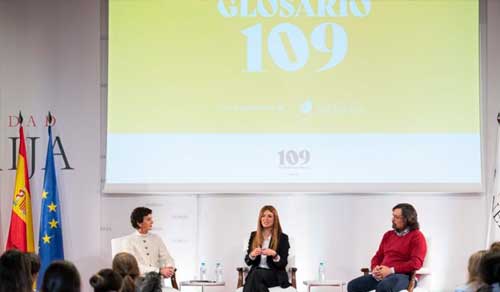
Glossary 109, neologisms in event organization
Not that long ago, event organization was nothing more than a subject of Marketing or Advertising degrees. Now, the sector has grown so much that it has its own identity. Glossary 109, presented at Nebrija University, aims to collect the 109 most-used terms in the day-to-day organization of events.
Read article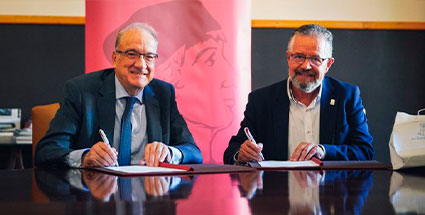
Agreement between Nebrija University and the Spanish Protocol Association
Nebrija University and the Spanish Association of Protocol (AEP) have signed a collaboration agreement with the aim of strengthening relations between both institutions, bringing students closer to the field of protocol.
Read article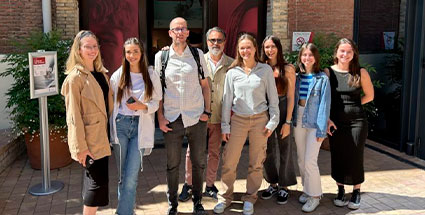
Masterclass by Juan Cenoz, creative director of the VCCP agency
The creative director of the multinational agency spoke to our Bachelor's degree students about the advertising and branding success story of O2, the brand of the Telefónica group, for which he is responsible at VCCP.
Read articleNebrija Event Awards III
For yet another year, students from the Bachelor's Degree in Strategic Communication, Protocol and Event Organization prepare the Nebrija Event Awards. A meeting point for professionals in the sector and the future of event organization.
XX Tocados
One more year, the students of Nebrija University award the best campaigns of the year, excellence and recognition to the most outstanding protagonists of the sector, in an edition that was attended by Luis Bassat, Toni Segarra and Concha Wert.
Communication and Arts Week
The School of Communication and Arts of the University once again organized its thematic week, with outstanding activities and presentations. Risto Mejide, Pepa Bueno and Adriana Ozores were some of the distinguished personalities who came to our Madrid-Princesa Campus.
Discover TEDxUNebrija
Bajo el lema Limitless, los estudiantes y profesores de la Facultad de Comunicación y Artes han organizado esta conferencia TEDx en la Universidad Nebrija. Un análisis del ser humano en sociedad y su búsqueda constante de superación y progreso. En TEDxUNebrija queremos demostrarle al mundo que no hay límites a la creatividad.
Are you interesTED? You are inviTED.
Nebrija Code
The students of the Degree in Strategic Communication, Protocol and Event Organization carry out the Nebrija Code every year. The objective of the activity is to implement and publicize the professional world of Corporate Communication and the Protocol, creating a direct relationship between the students and the agencies, media and industry professionals.



